Toward Climate-Resilient Urban Mobility in Nepal Mapping Risks and Uncovering Opportunities
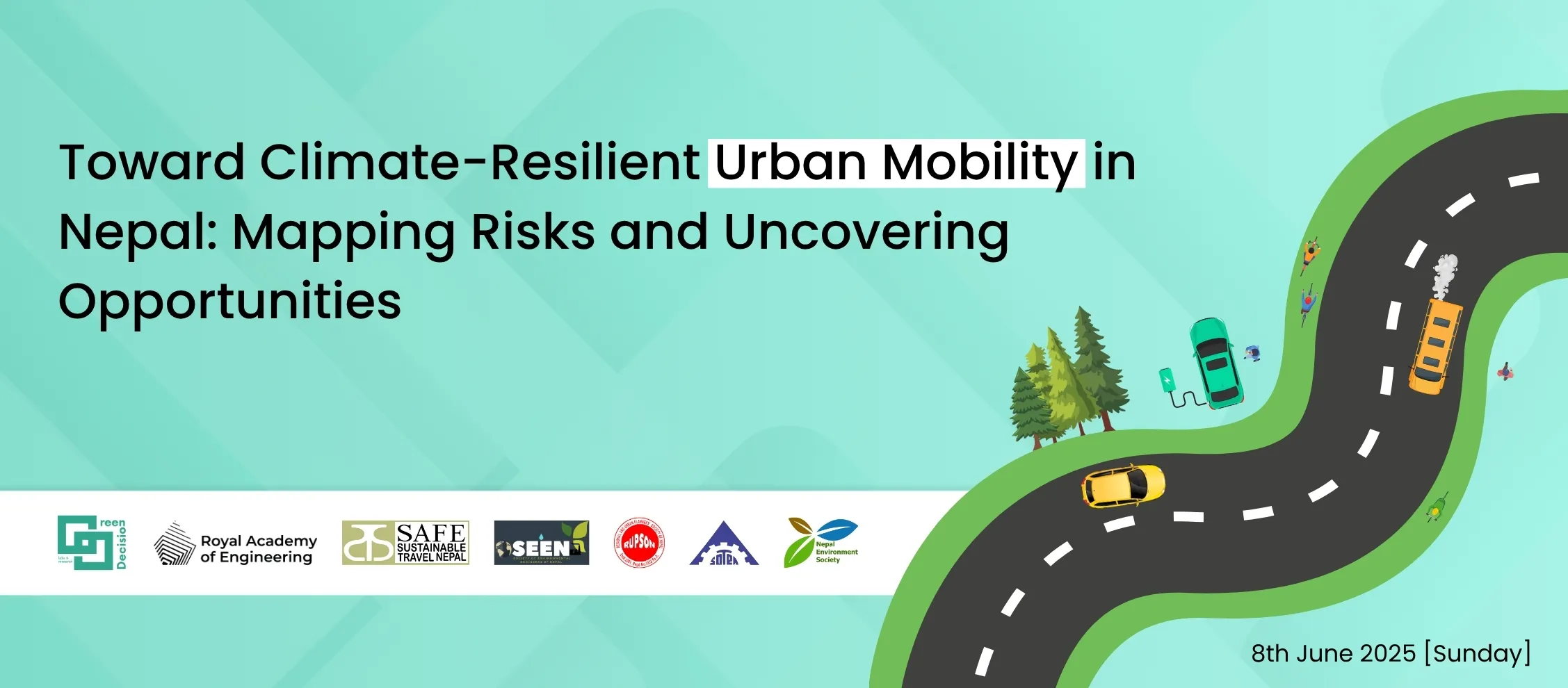
Kathmandu, like many growing cities in Nepal, is at a critical crossroads. With increasing traffic congestion, reliance on fossil fuels, and fragmented public transport systems, urban mobility faces significant challenges, particularly in the face of climate change. From heatwaves to floods and landslides, Nepal’s cities are increasingly vulnerable.
Recognizing this, a dynamic workshop was recently held in Kathmandu under the banner of the research project “Designing Resilient Urban Mobility Systems for Climate Adaptation”, supported by the Royal Academy of Engineering (RAE), UK.
This was a half-day event that brought together diverse stakeholders to explore actionable pathways toward cleaner, safer, and more inclusive mobility systems in Nepal. The workshop served not only as a platform for collaborative discussion but also as a crucial step in co-designing solutions tailored to Nepal’s unique socio-economic and environmental context.
Workshop Objectives
The workshop was designed to serve as a catalyst for informed dialogue and cross-sector collaboration. Four primary goals guided the event:
- Mapping Urban Mobility Vulnerabilities: Participants identified how climate risks; such as fuel shortages, floods, heatwaves, and landslides are disrupting urban transportation in cities like Kathmandu, Birgunj, and Pokhara.
- Evaluating Climate-Resilient Strategies: The workshop critically assessed the feasibility of low-carbon and inclusive mobility solutions, including electric vehicles, pedestrianization, improved cycling infrastructure, and real-time mobility data systems.
- Identifying Barriers and Enablers: Institutional gaps, governance challenges, financial constraints, and policy misalignments were explored alongside the opportunities for innovation, partnerships, and reform.
- Fostering a Community of Practice: A collaborative platform is being initiated to promote sustained dialogue, co-creation of solutions, and development of future pilot projects.
Who Participated?
The workshop welcomed a wide array of stakeholders, reflecting the complexity and interconnectedness of Nepal’s urban mobility ecosystem:
- Urban planners and government officials
- Climate scientists and environmental engineers
- Transport operators and private sector innovators
- Civil society representatives, especially women, youth, and marginalized communities
- Financial institutions and impact investors
- Academics, think tanks, and regional experts
Key Activities of the Workshop
The event unfolded through four highly interactive and interdisciplinary sessions:
- Expert Panel Discussion:
A high-level panel discussion set the tone, with experts from six thematic areas, Active Mobility, Electric Vehicles & Transport Entrepreneurs, Technology & Engineering, Governance, Climate & Environment, and Green Financing sharing their insights. Panelists reflected on Nepal’s progress, persistent challenges, and emerging innovations in building climate-resilient mobility systems. Panelist for the workshop:- Mr. Shail Shrestha – Advocate for active mobility and sustainable streets
- Dr. Hare Ram Shrestha – Leader in engineering innovation and resilient infrastructure
- Mr. Bhushan Tuladhar – Renowned expert in climate, environment, and public transport
- Mr. Nilaraj Bhattarai – Voice of innovation in Nepal’s evolving transport tech landscape
- Hon. Madhav Sapkota – Parliamentarian and policymaker championing sustainable urban governance
- Interdisciplinary Group Work:
Participants were divided into four interdisciplinary teams, each including representatives from all six themes. This arrangement fostered a rich exchange of ideas across sectors and helped participants view urban mobility challenges through an integrated lens. - PESTEL Analysis (With an Innovation Twist):
Each group conducted a modified PESTEL analysis: exploring Political, Economic, Social, Technological, Environmental, and Legal dimensions, while adding a unique category: Innovation & Transport Entrepreneurship. This reflected the growing role of the private sector and start-up ecosystems in shaping Nepal’s mobility future. - SWOT Analysis:
Building on the PESTEL insights, participants performed a SWOT analysis to identify the Strengths, Weaknesses, Opportunities, and Threats of Nepal’s current urban mobility landscape. This helped teams move from diagnostics to action-oriented thinking.
Few Glimpse from the Event Day
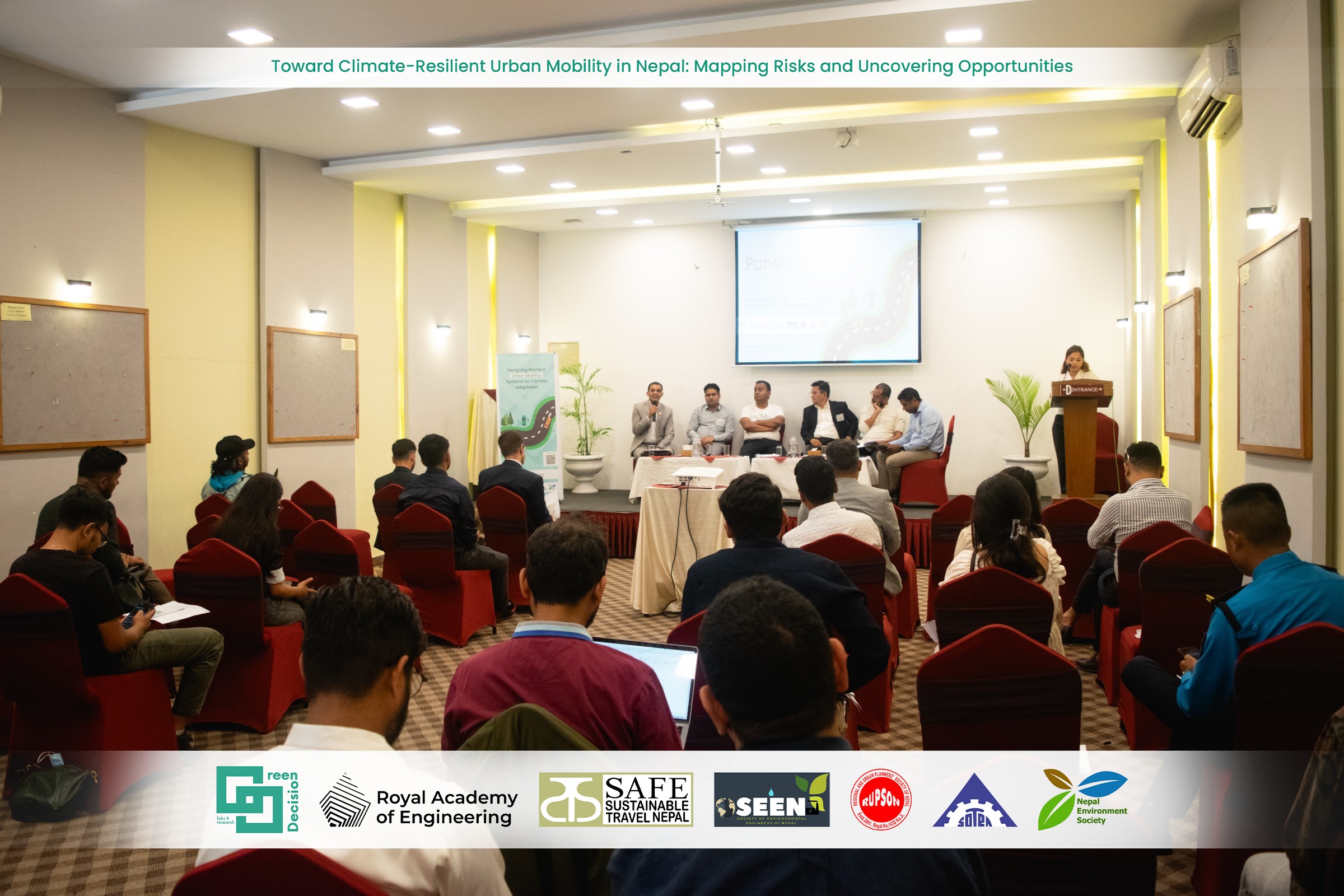
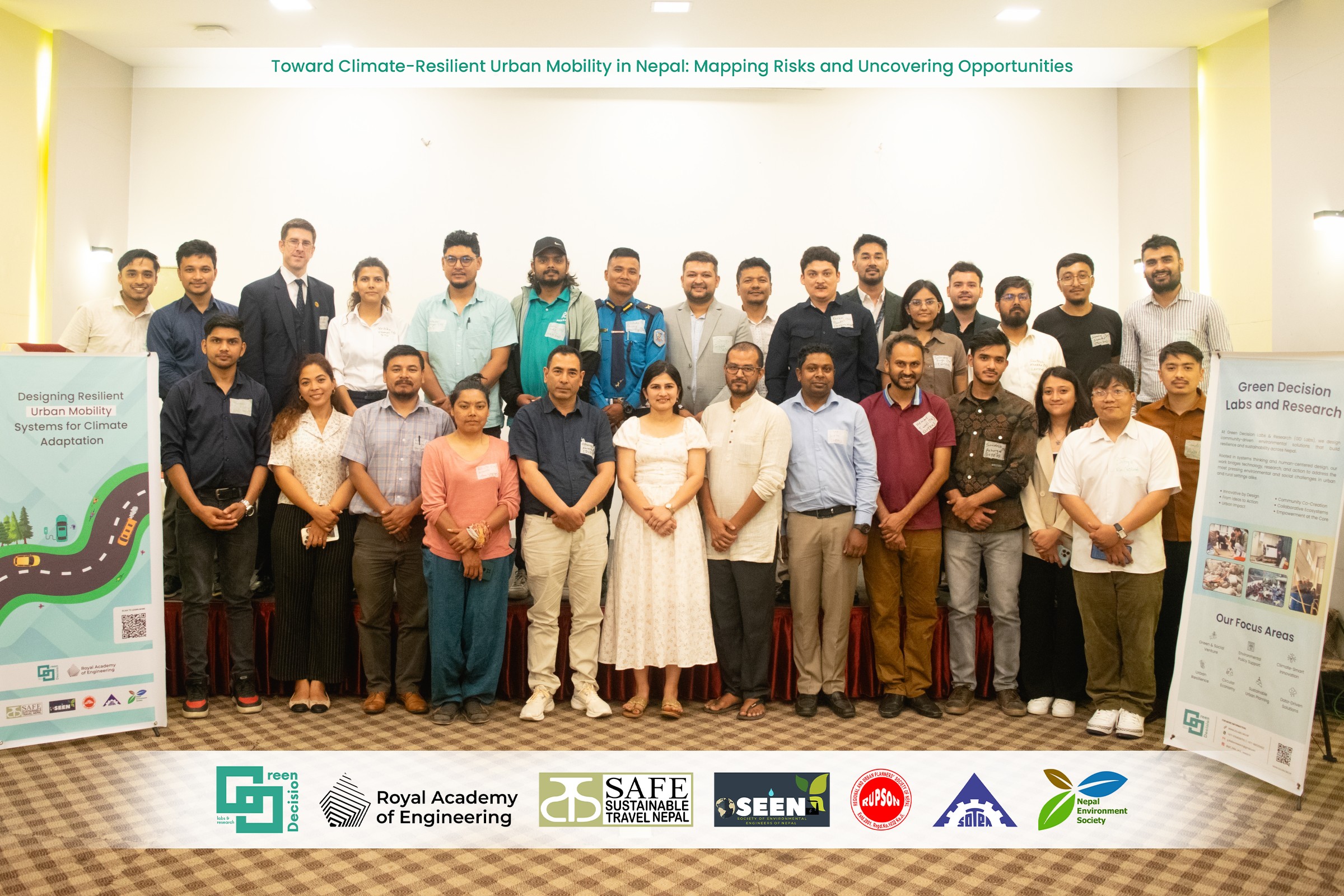
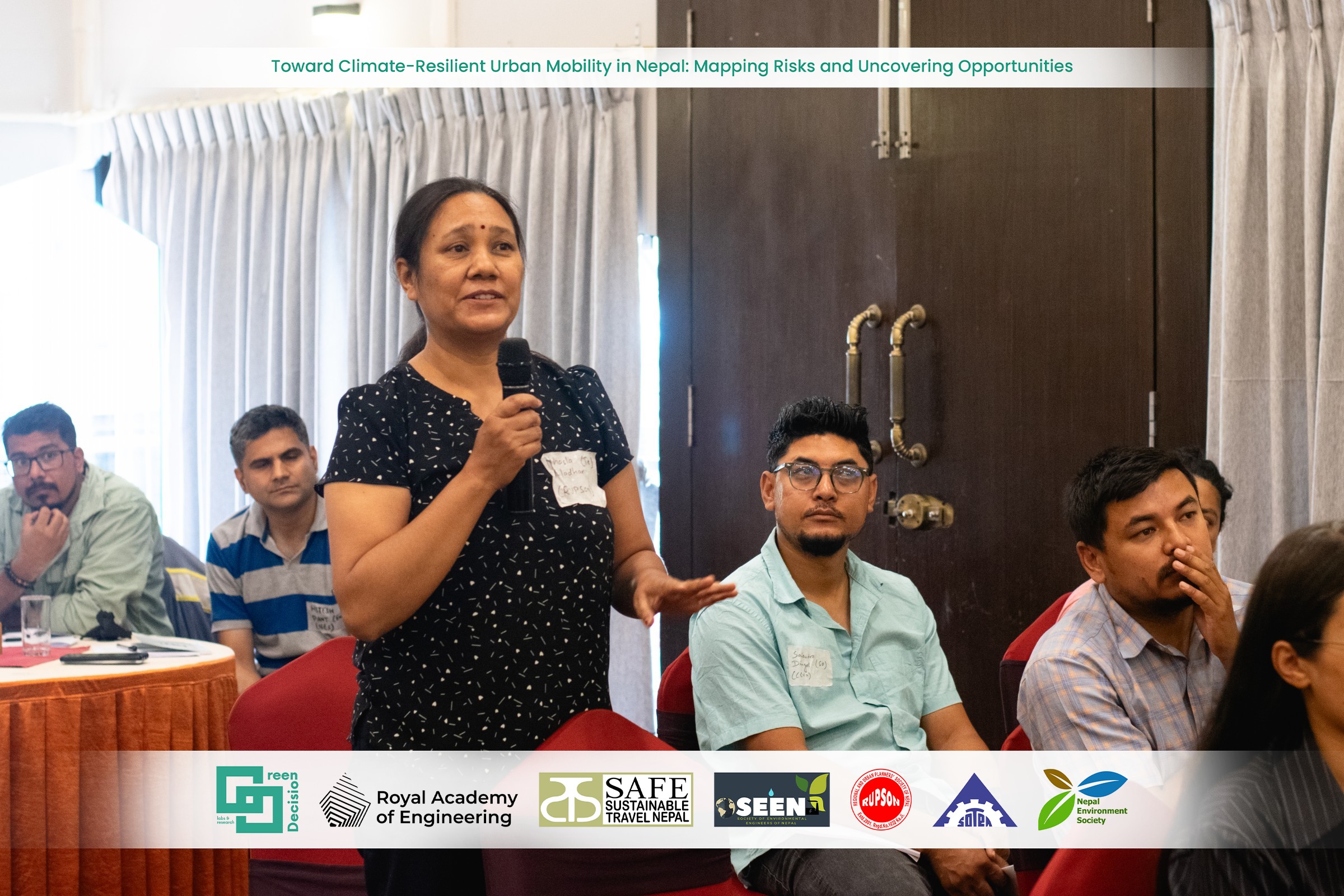
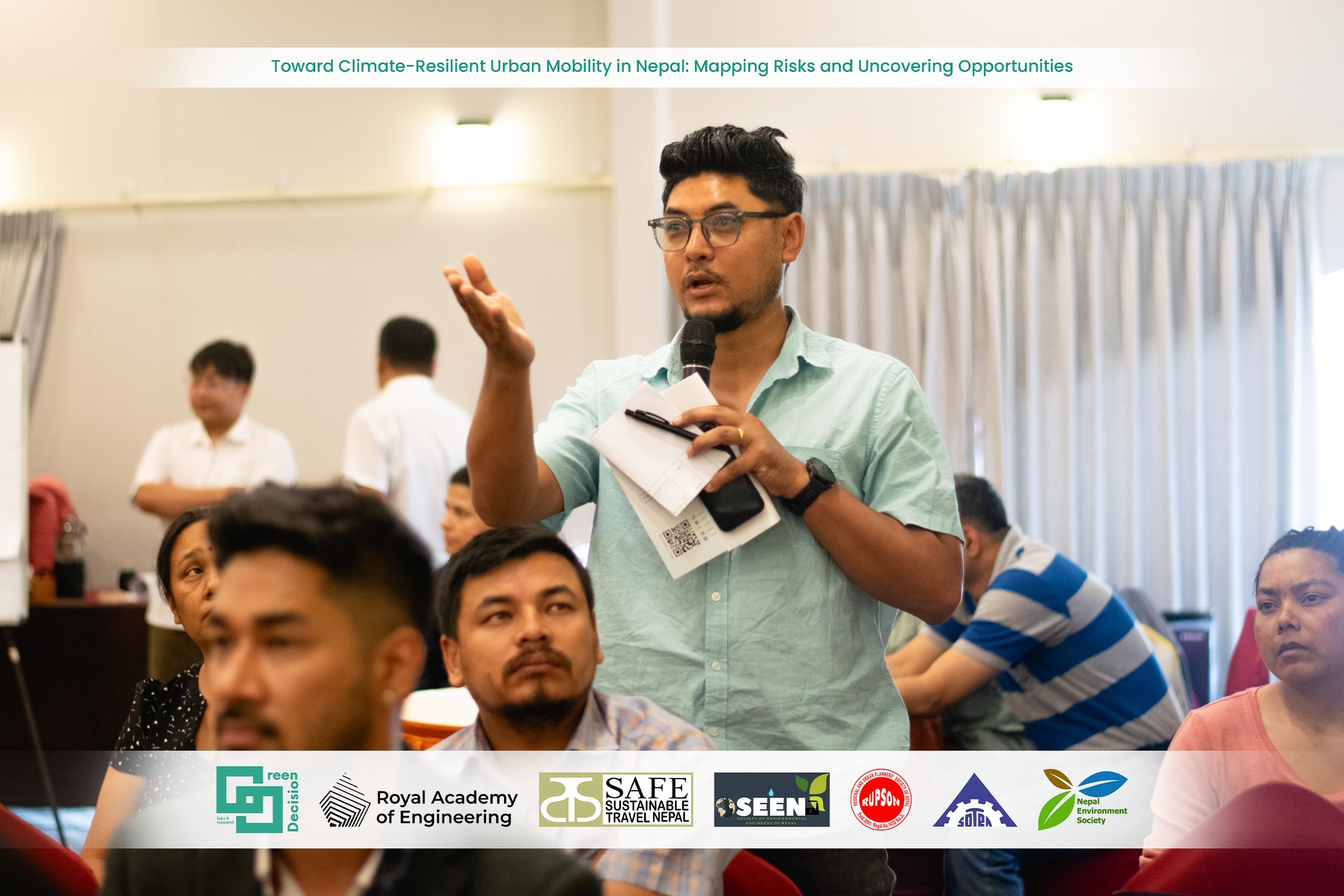
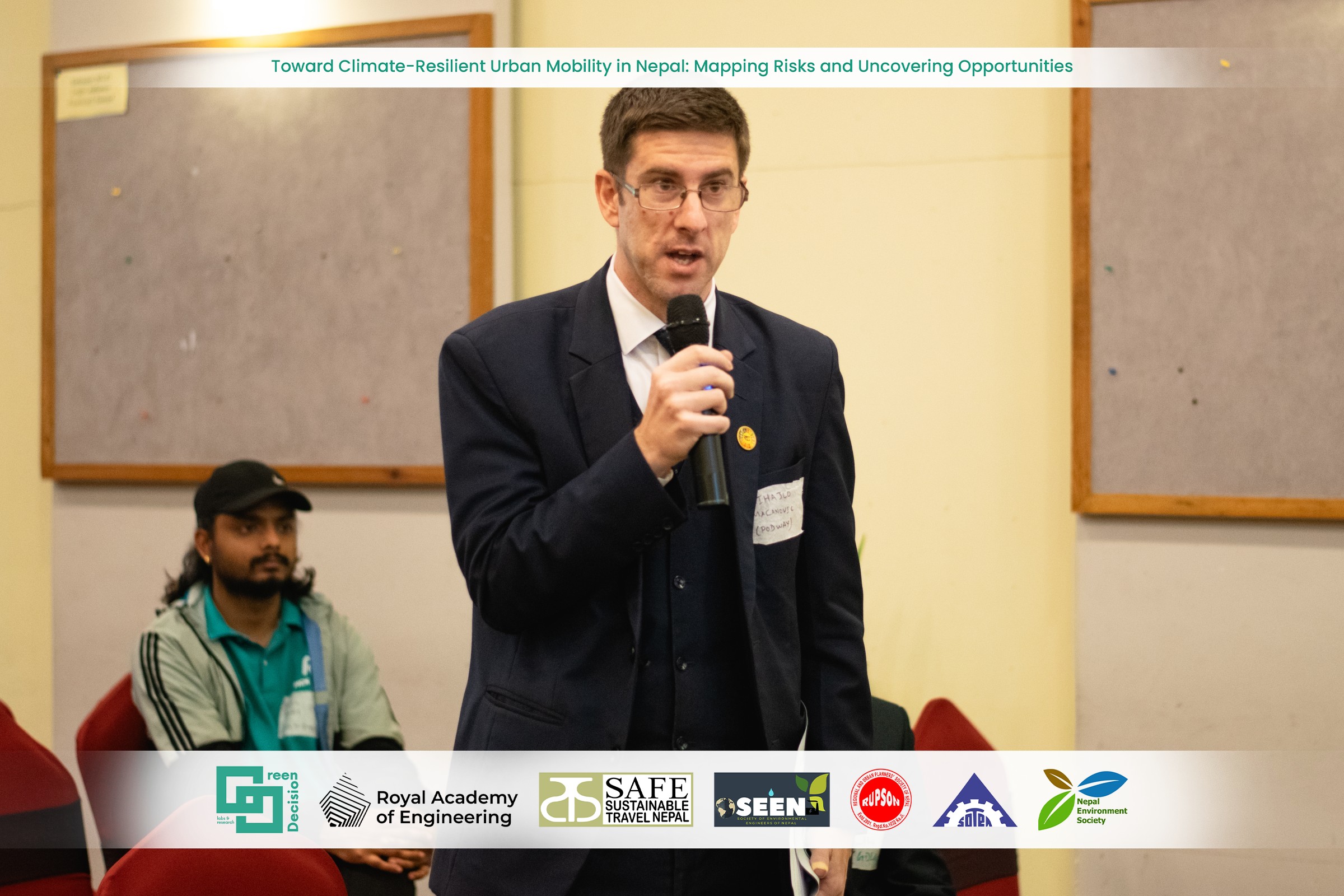
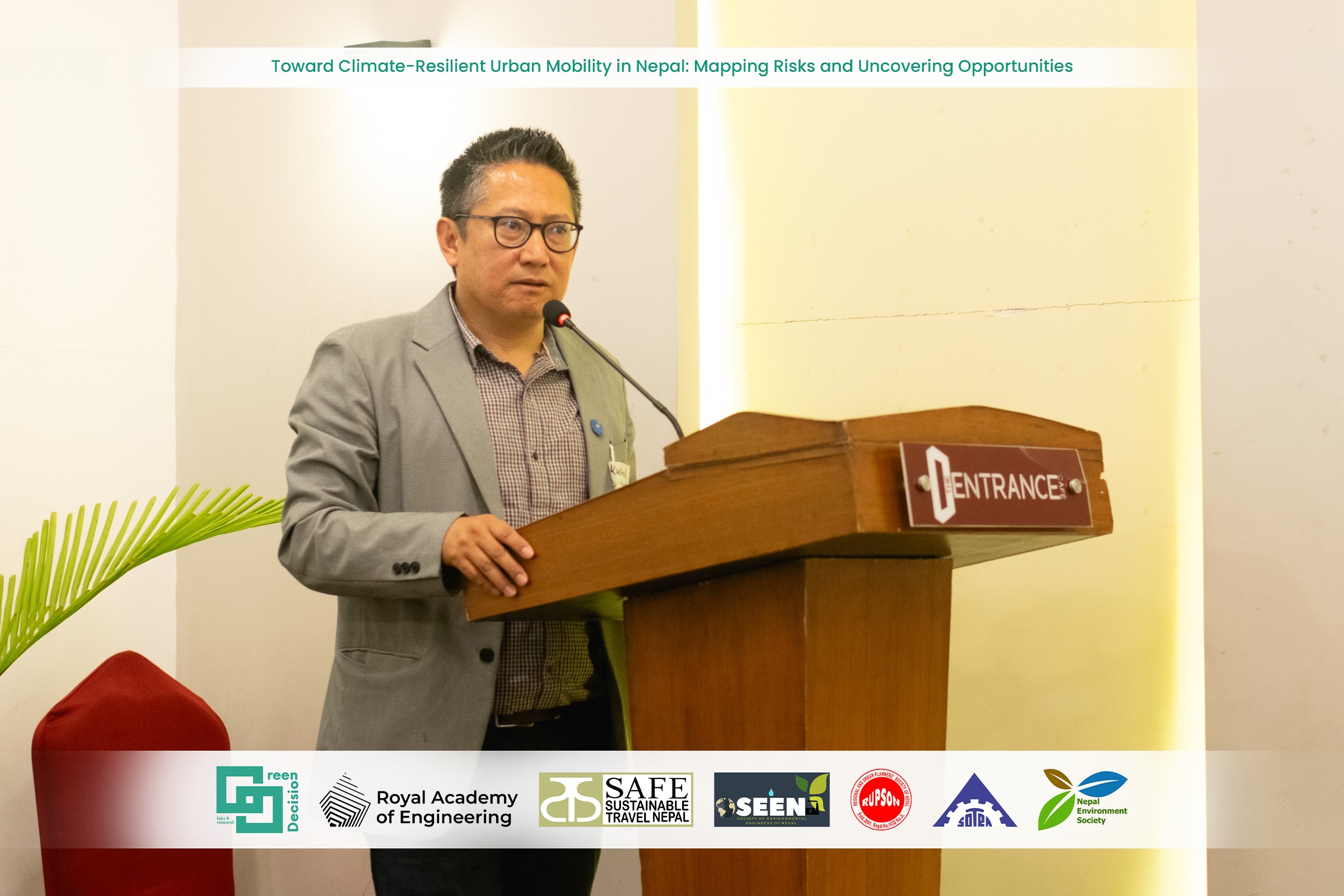
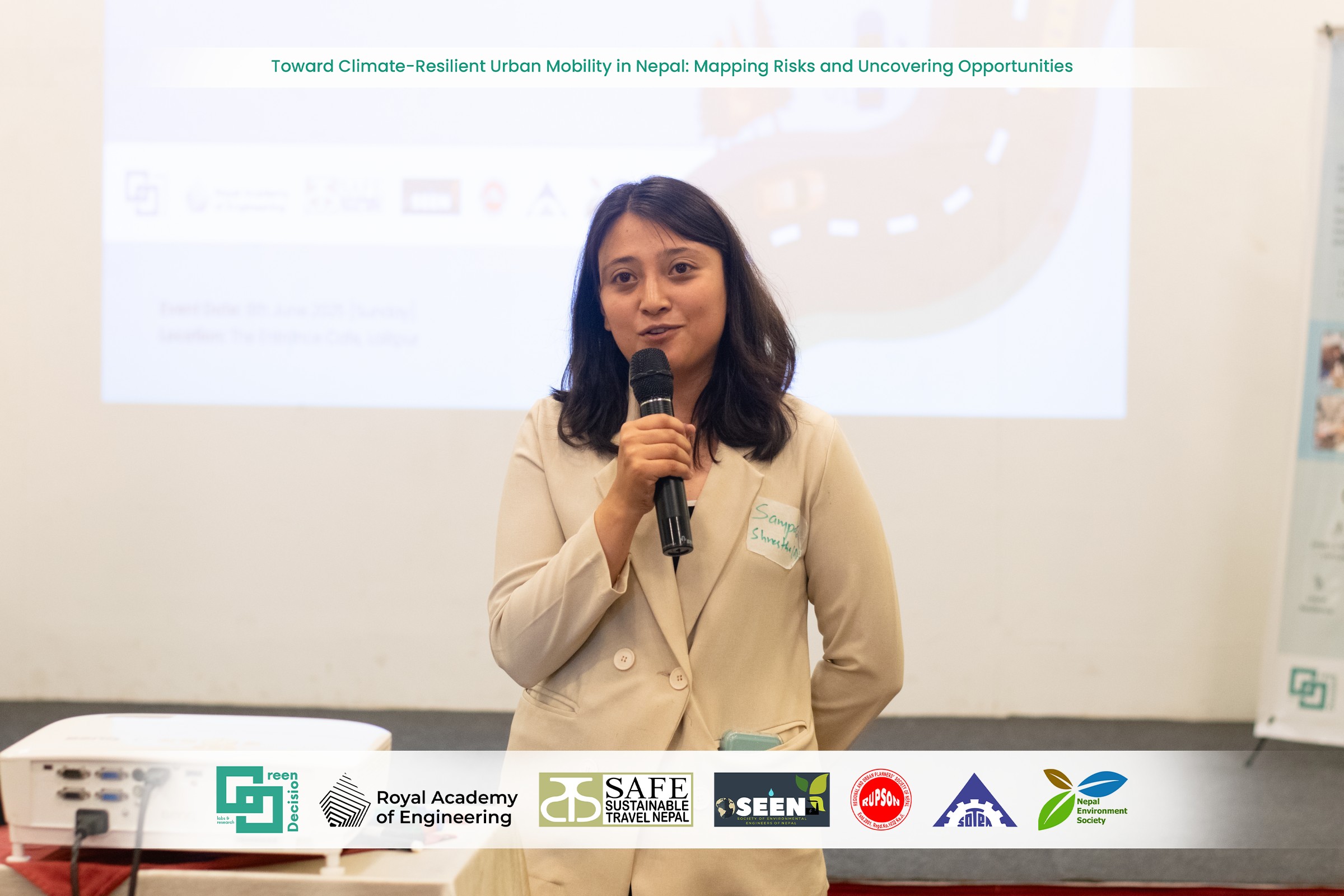
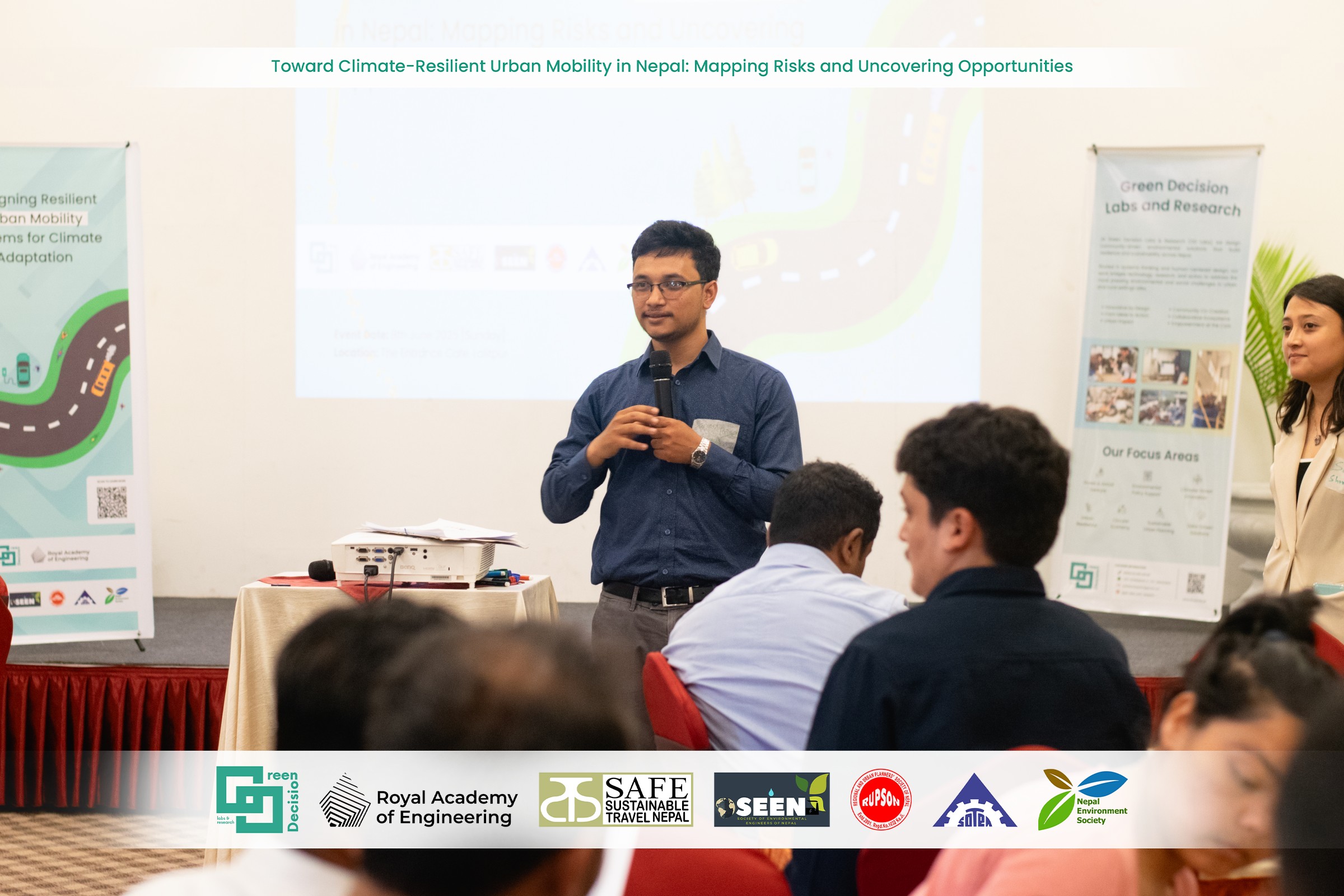
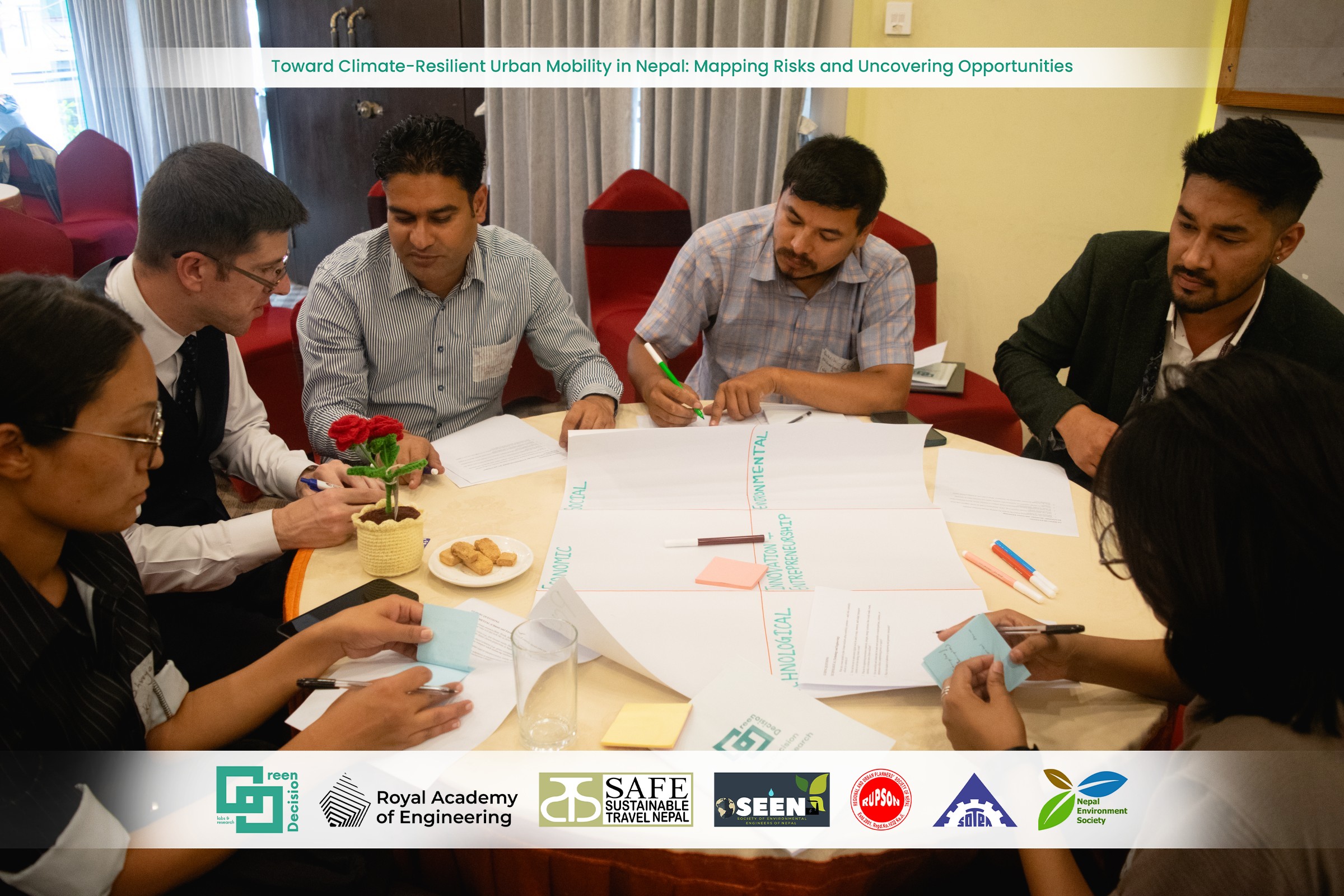
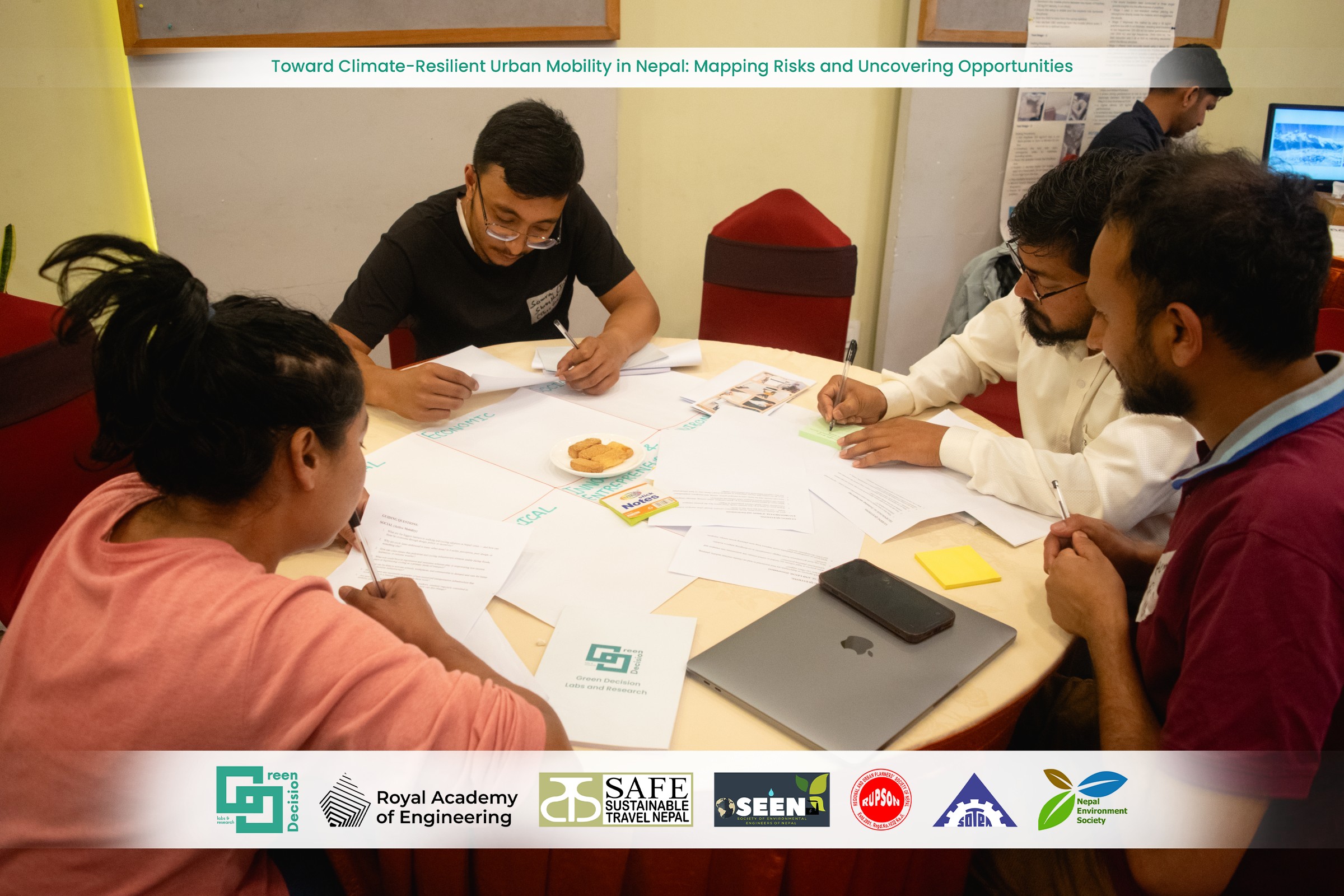
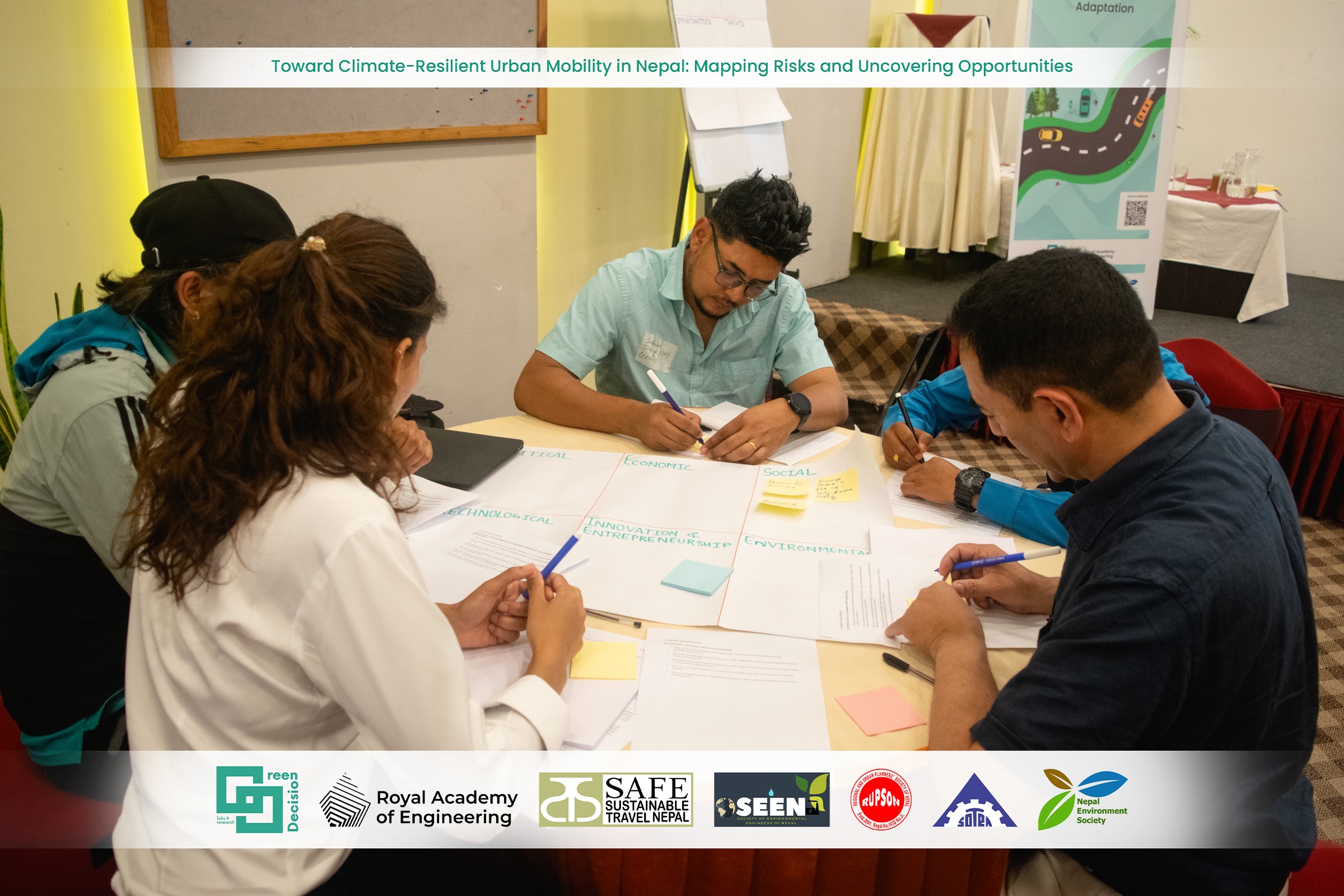
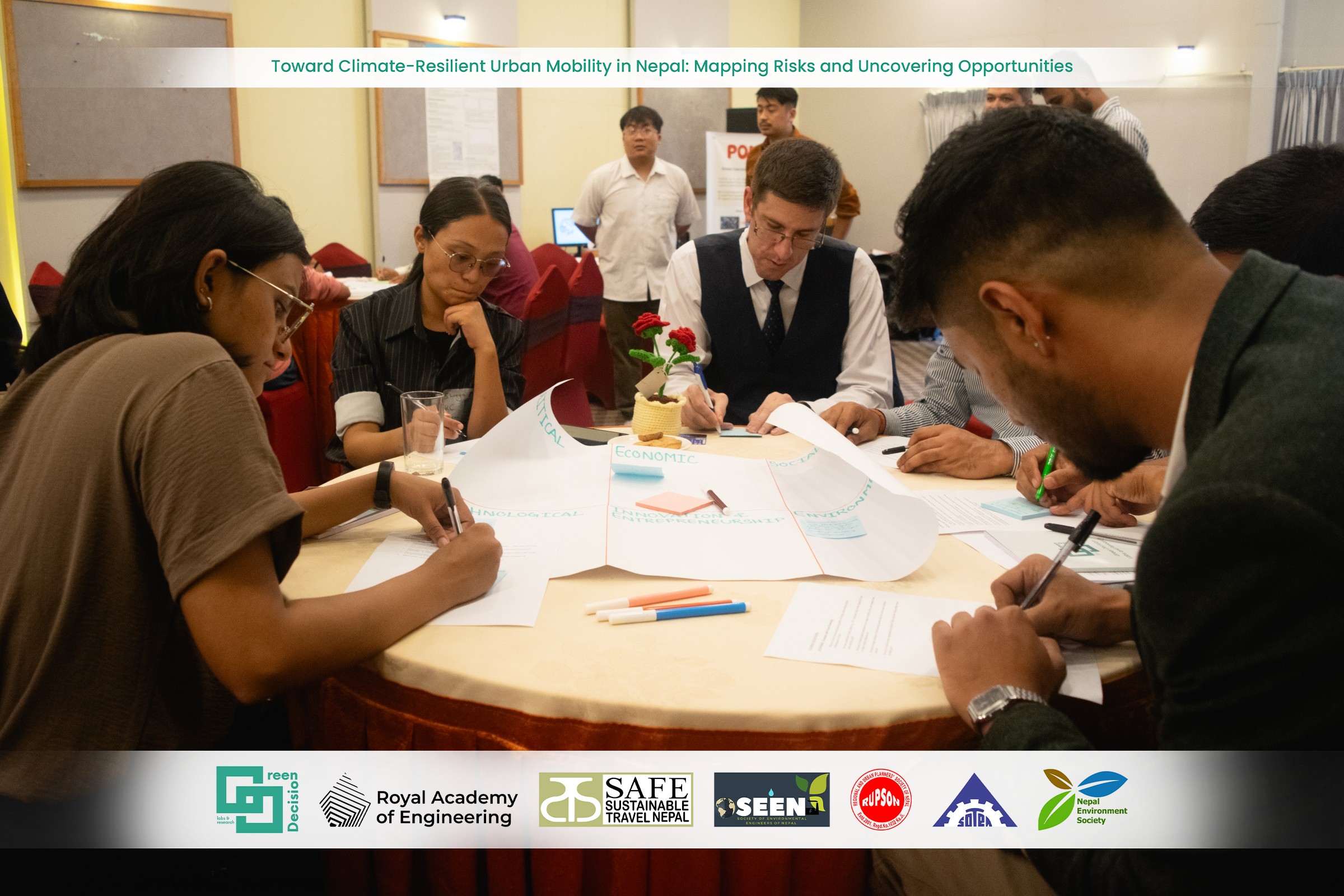
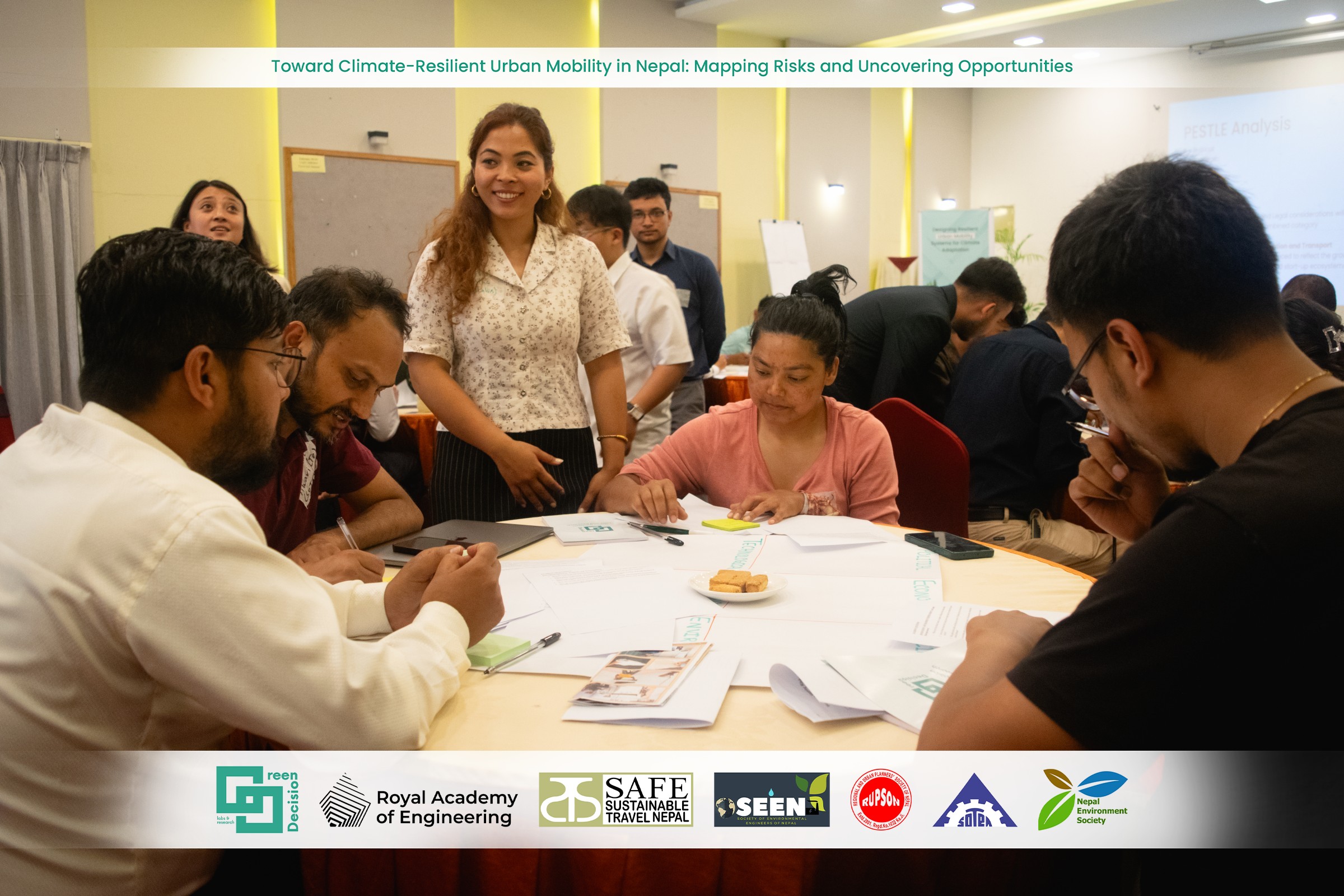
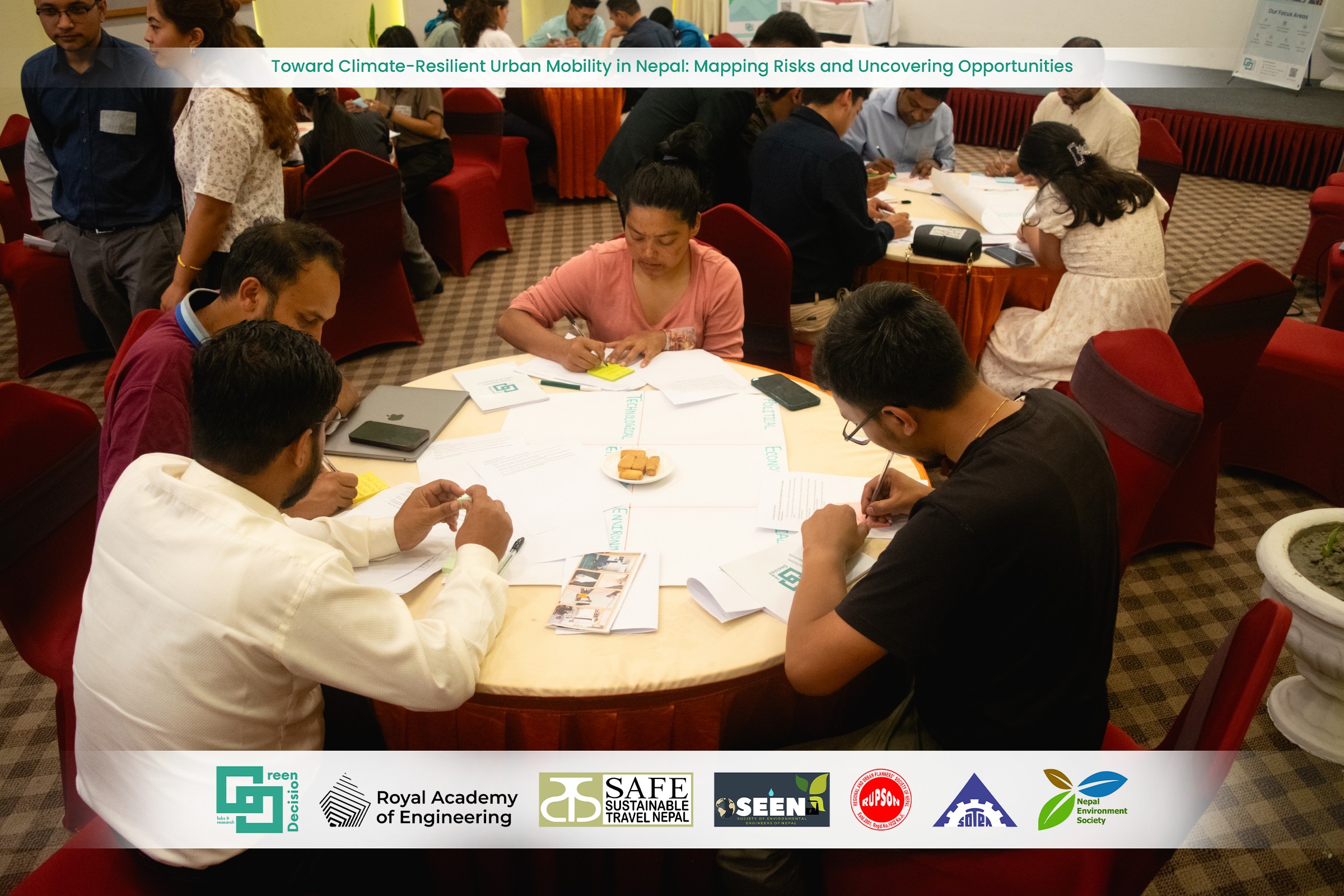
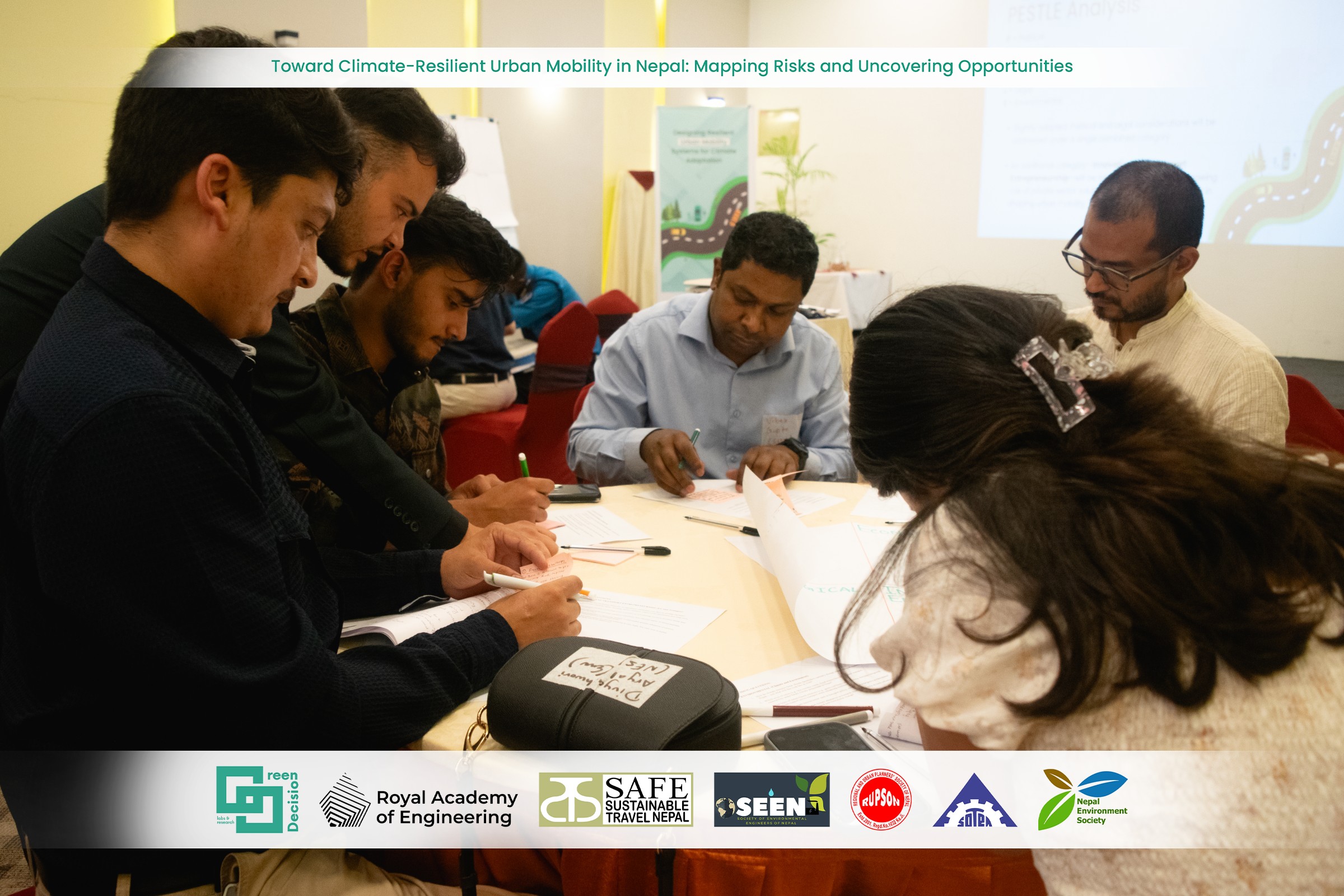
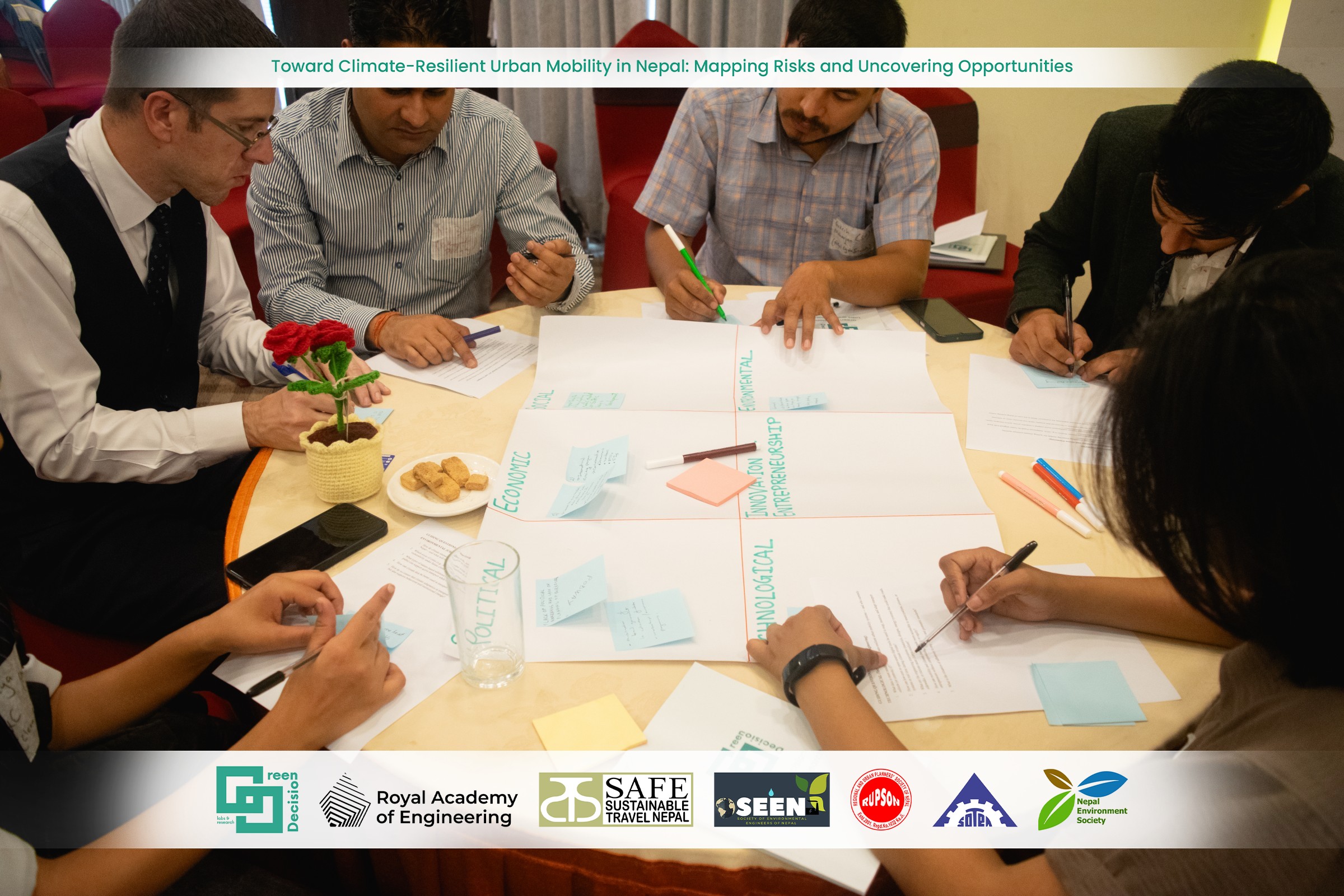
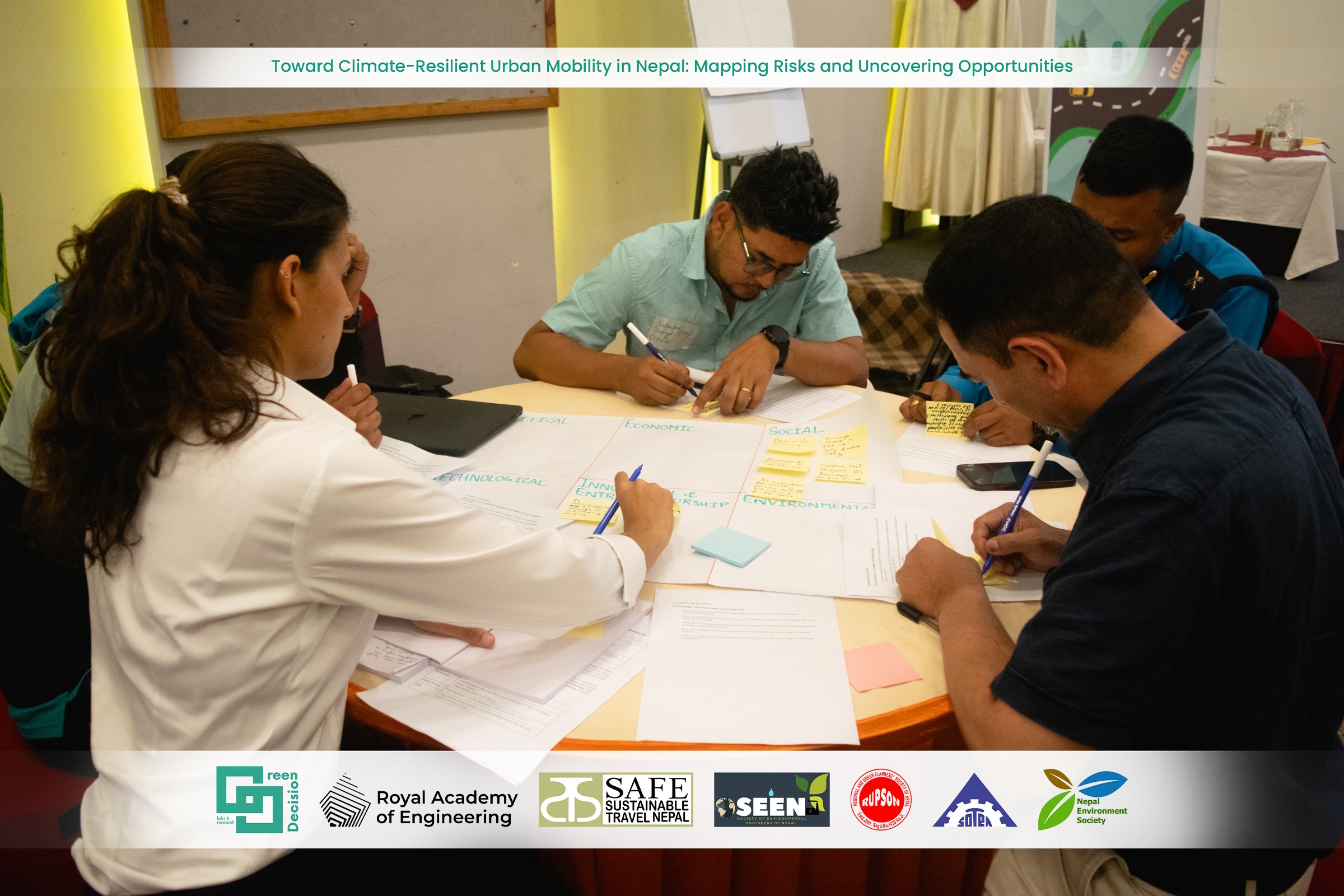
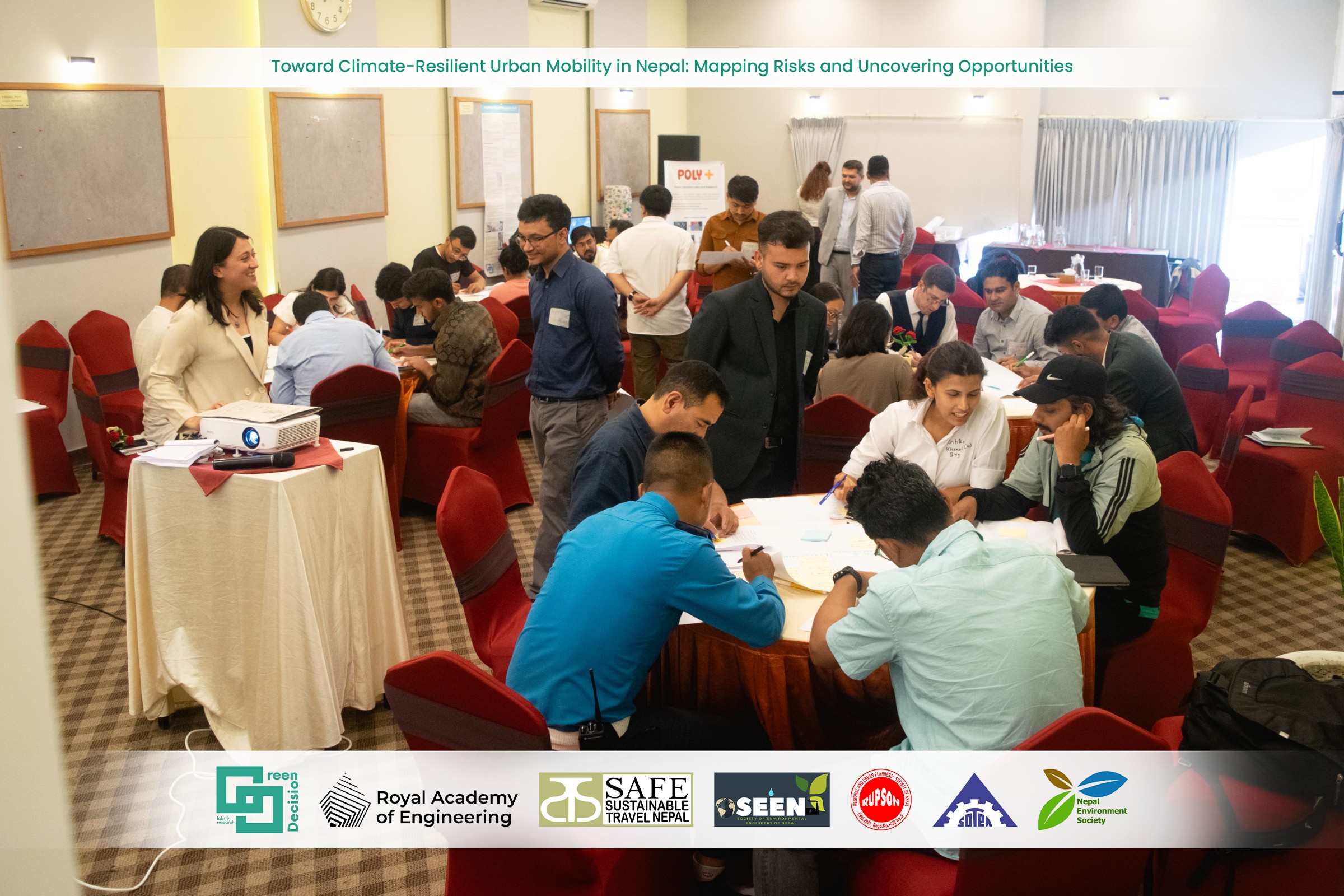
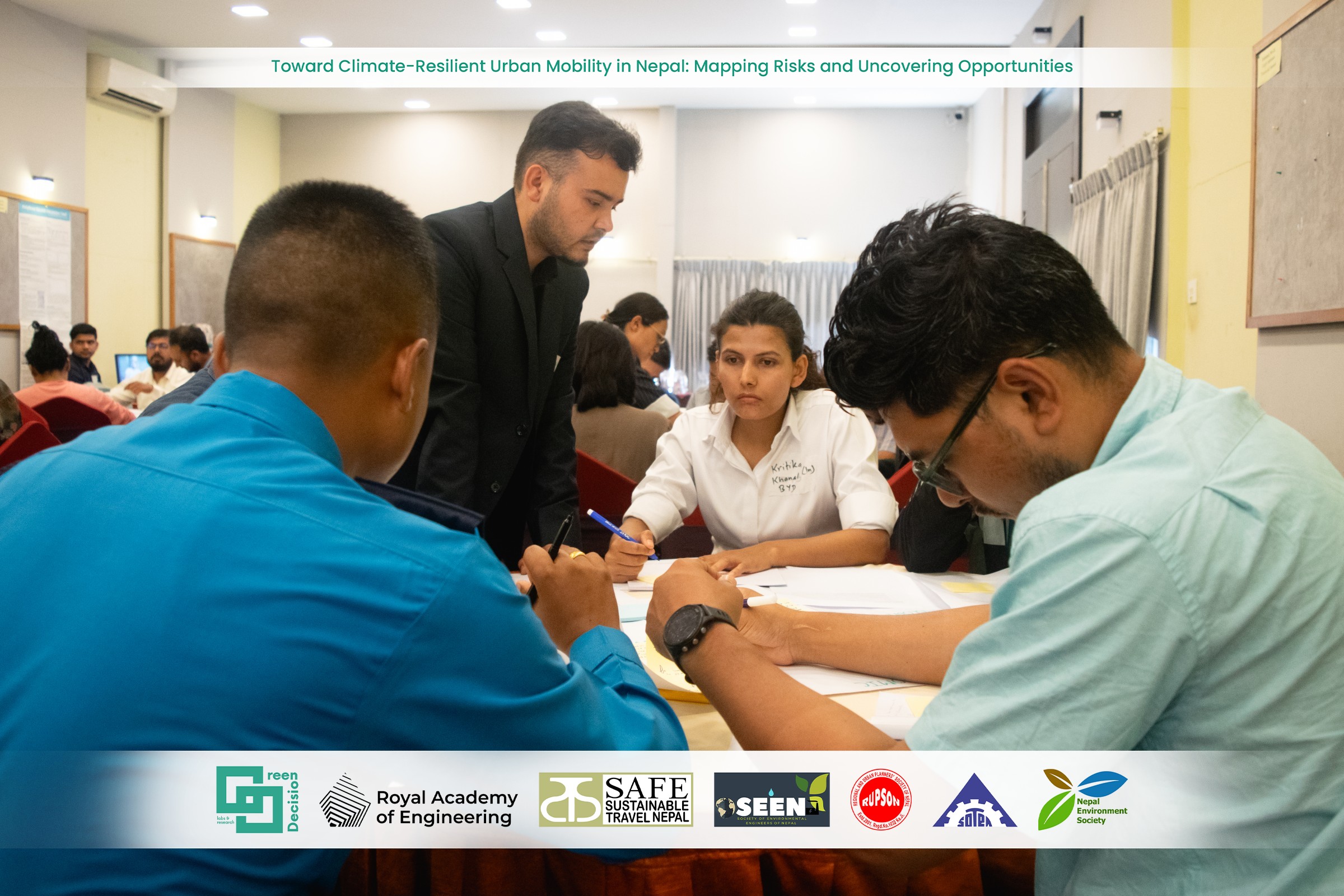
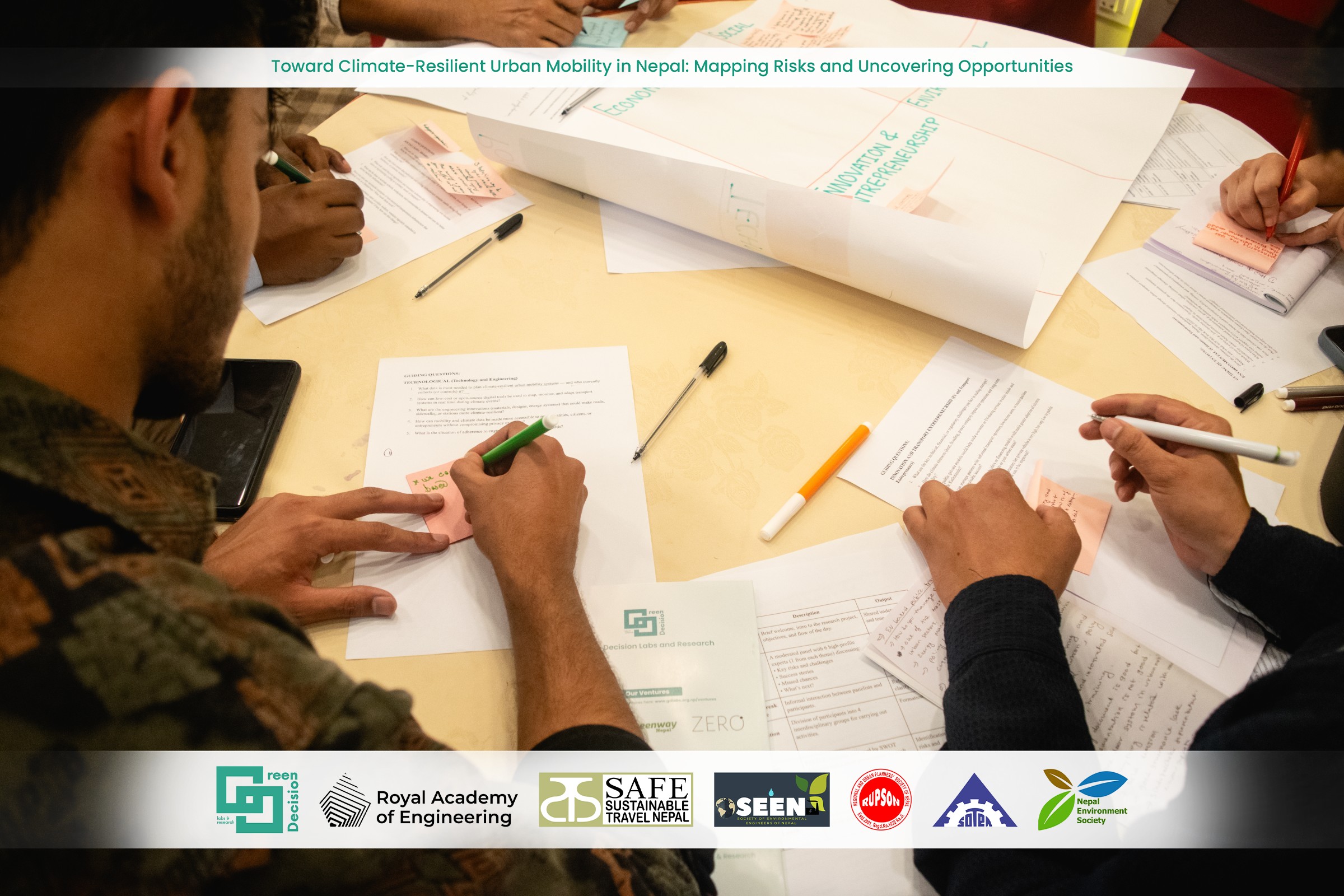
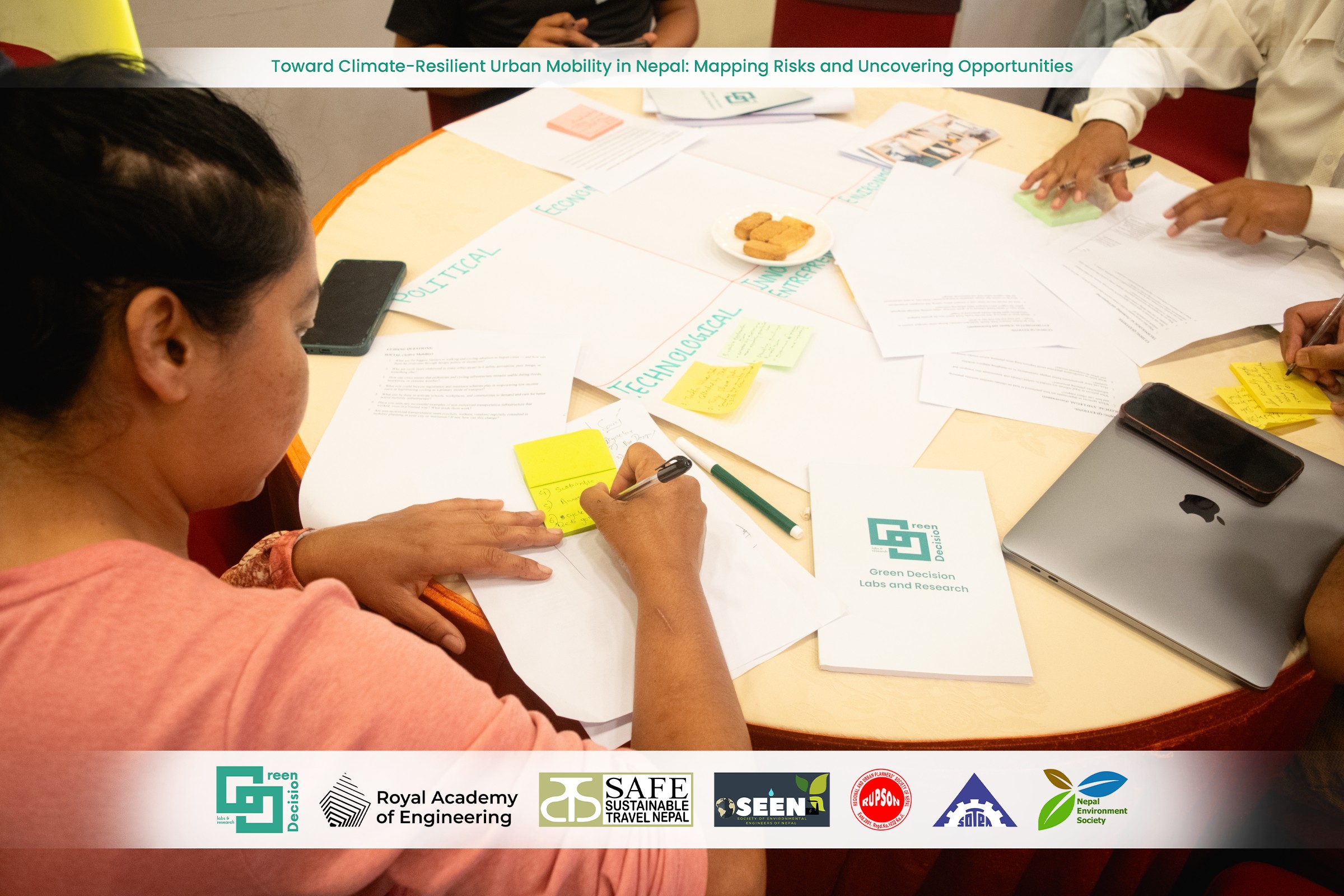
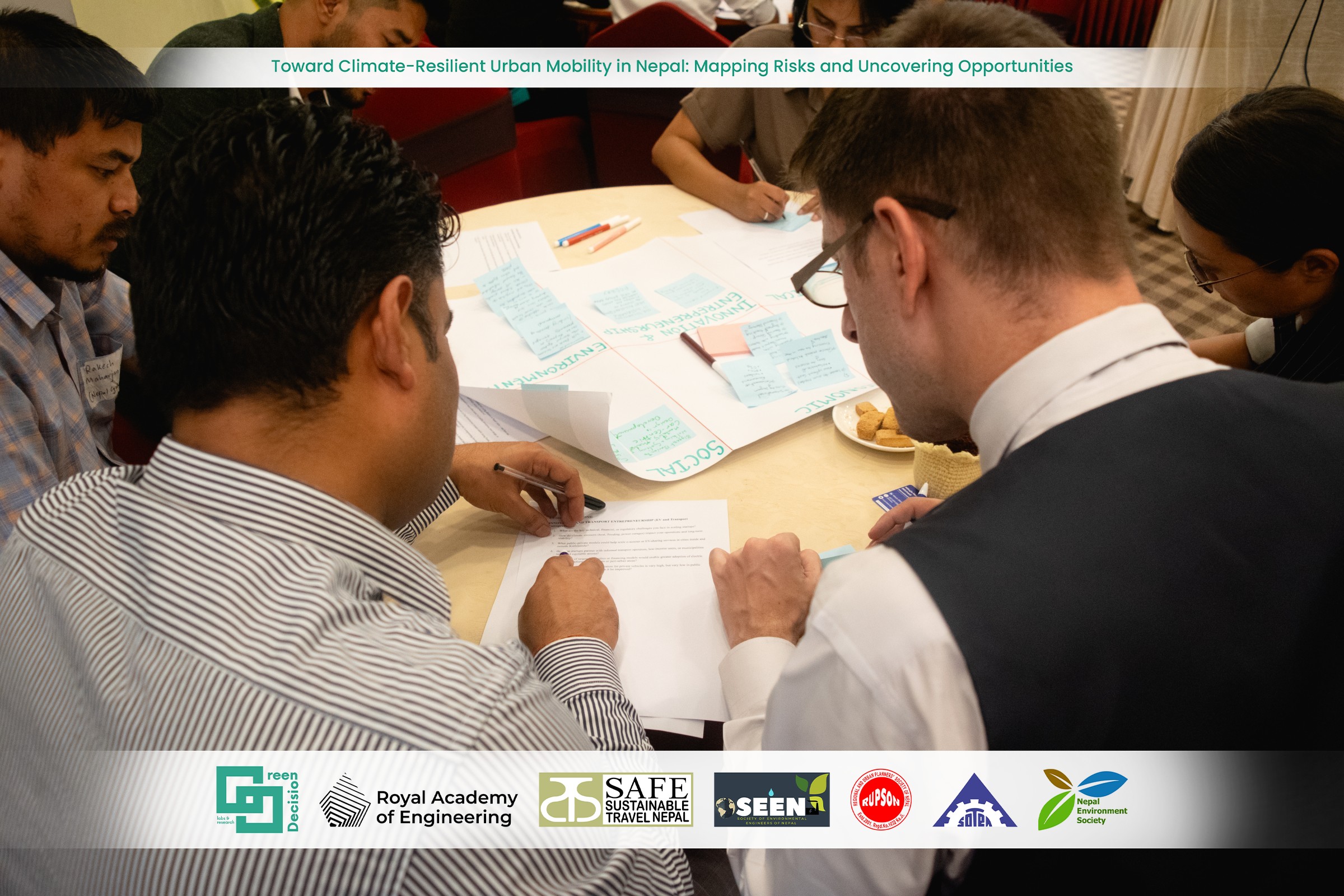
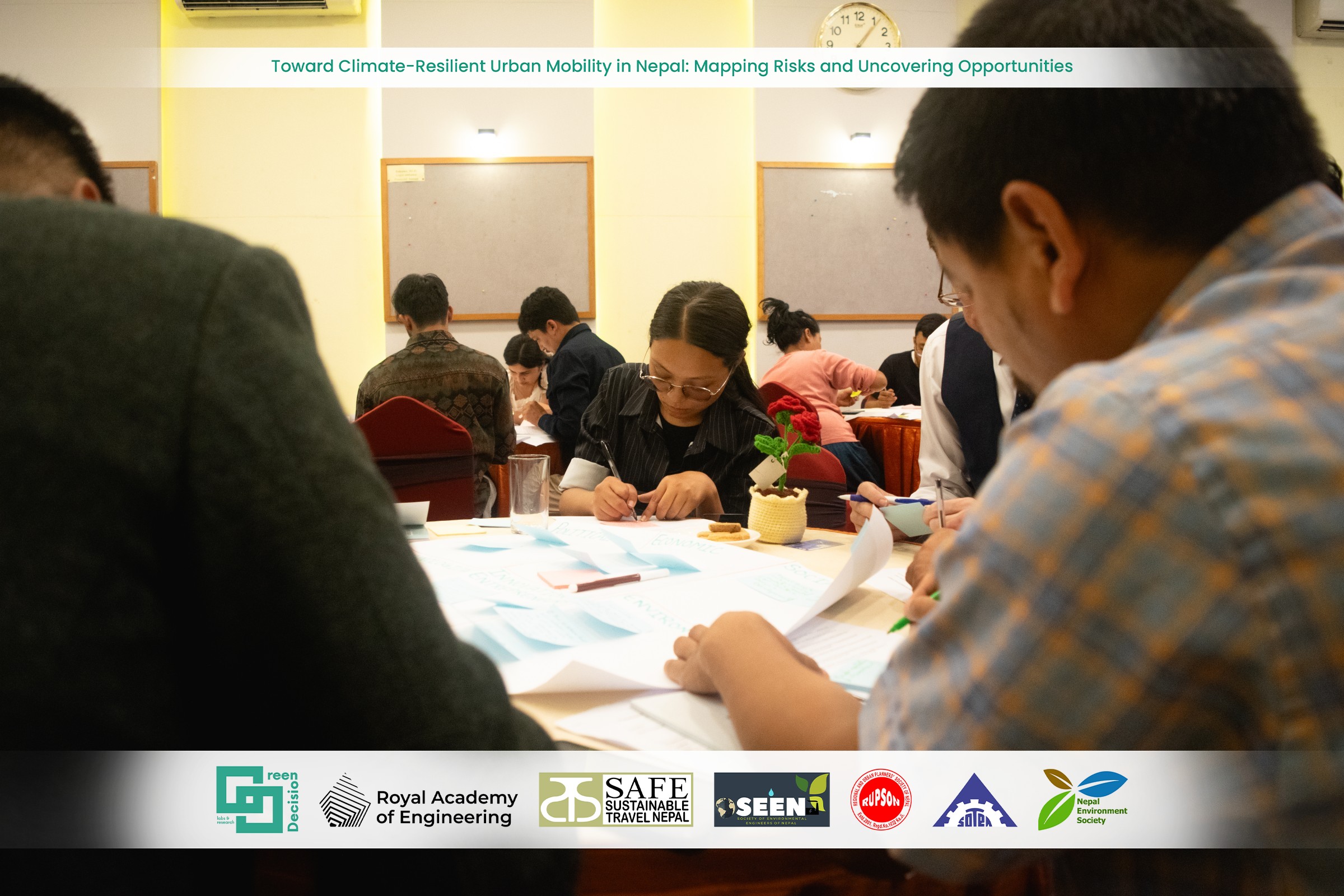
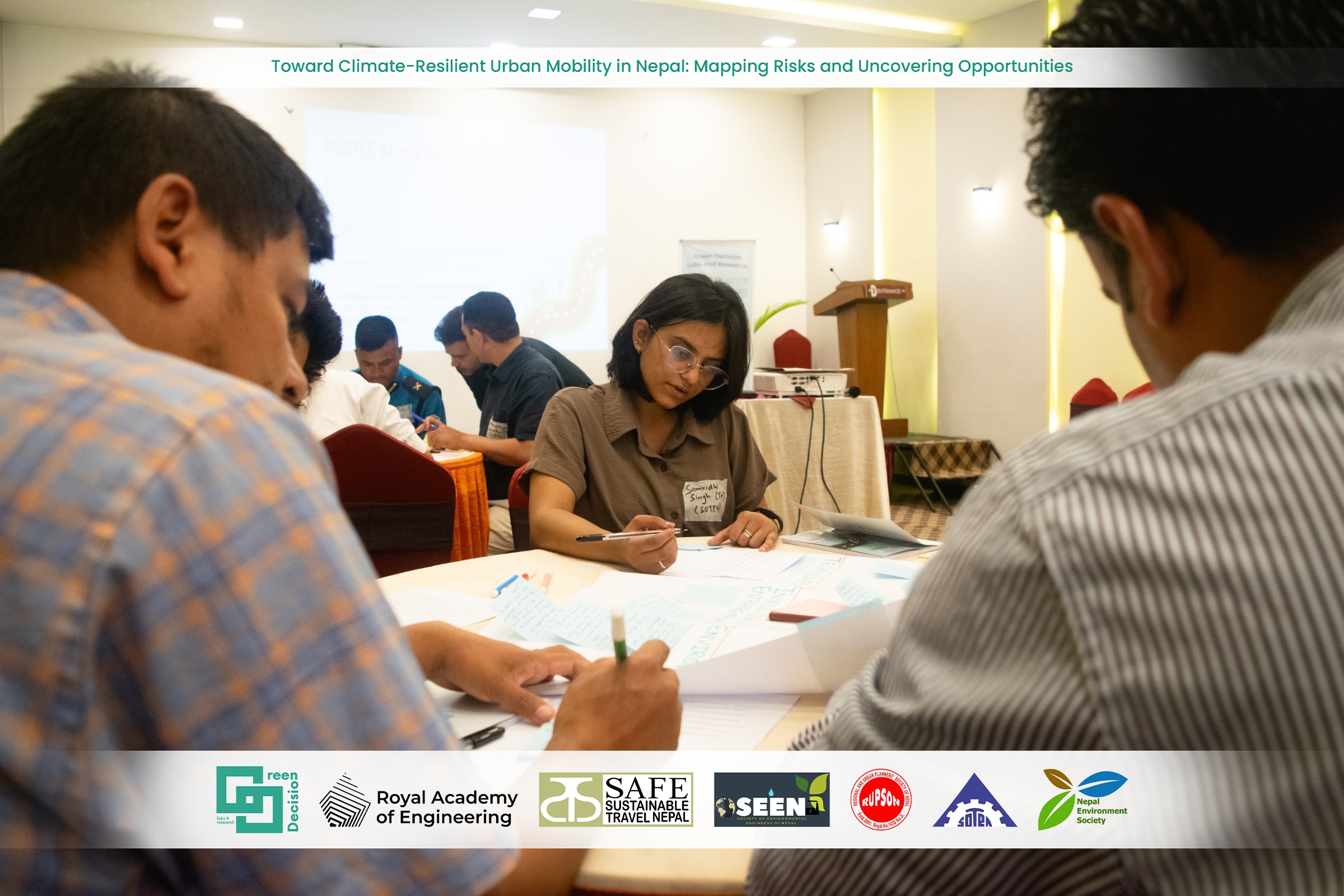
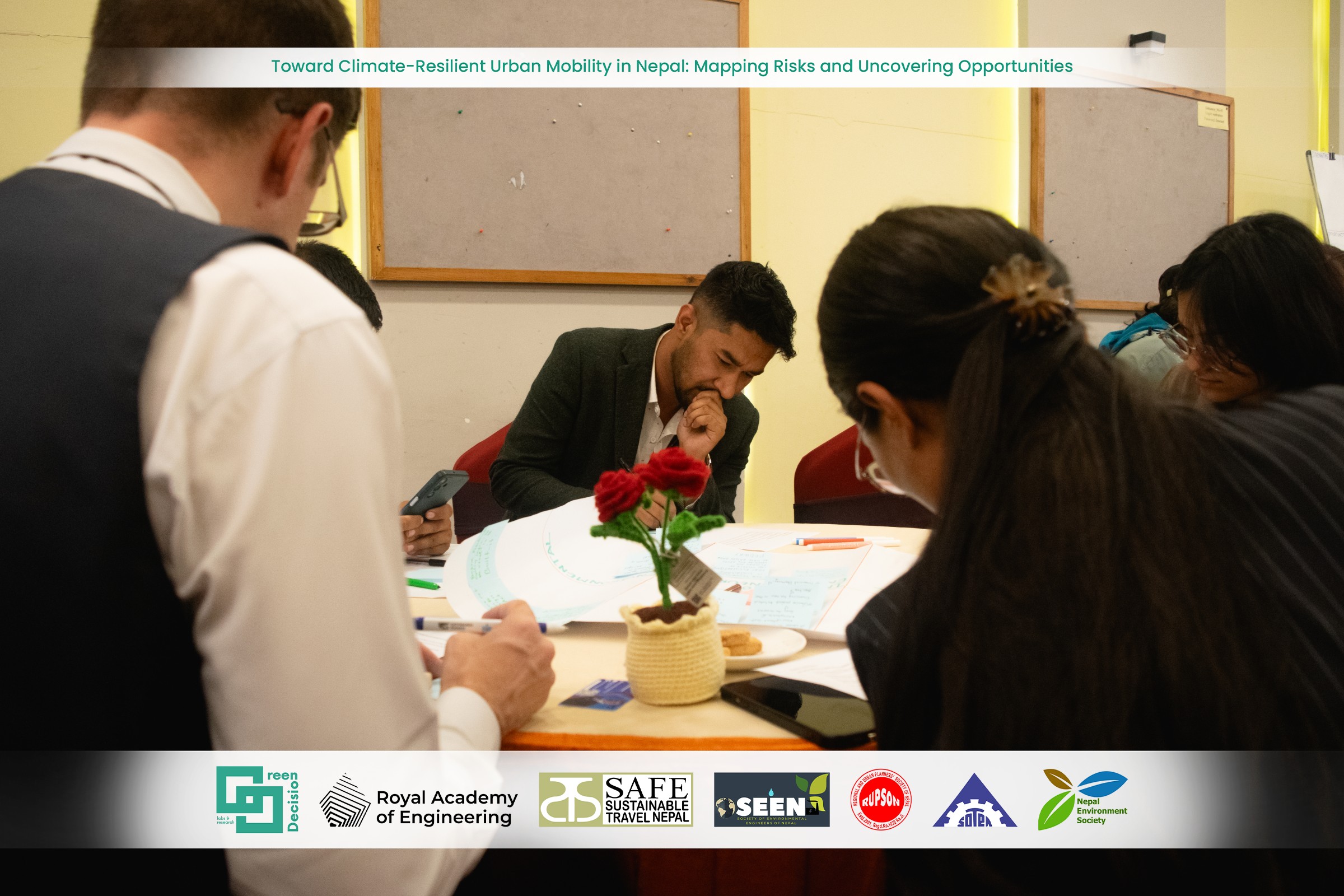
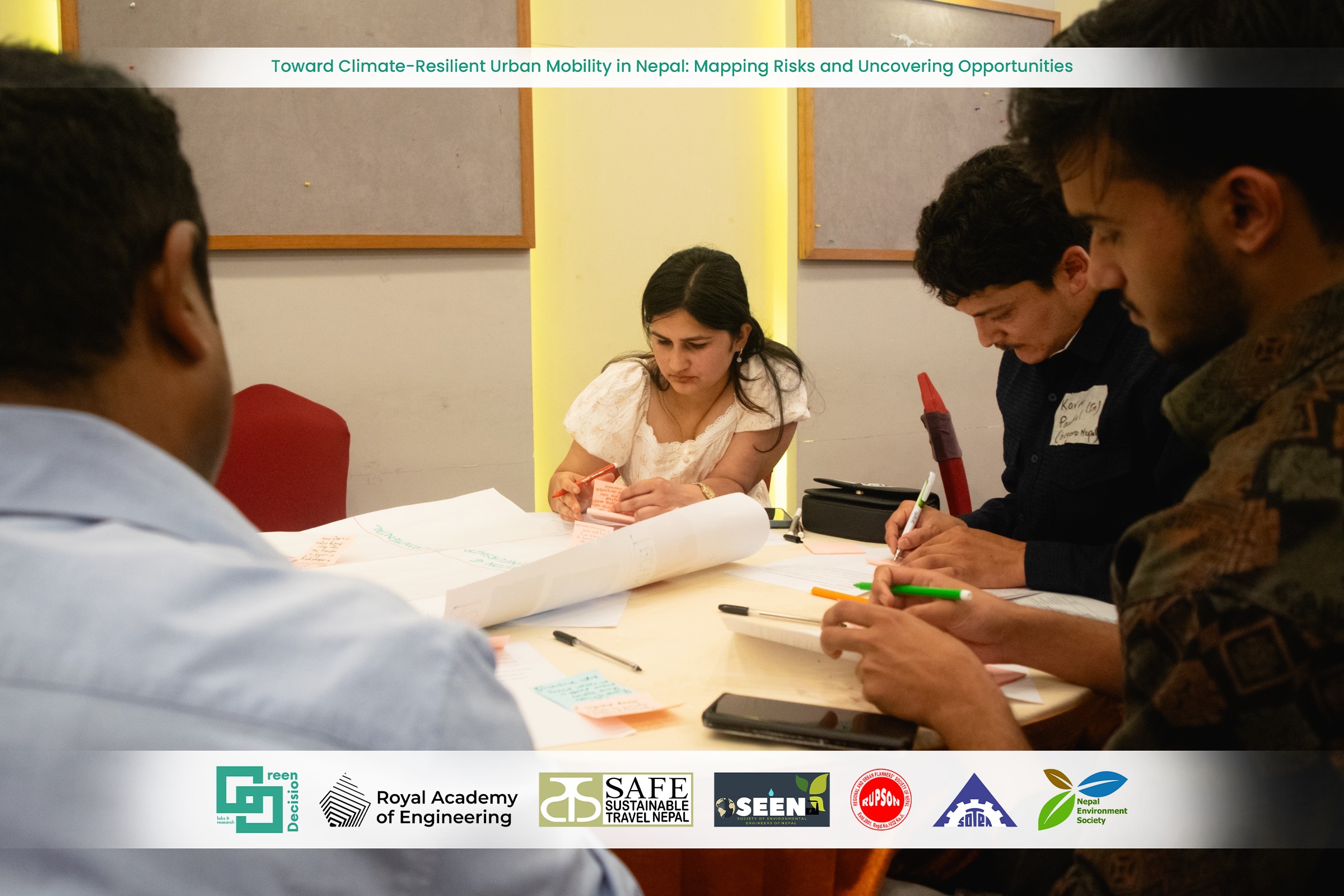
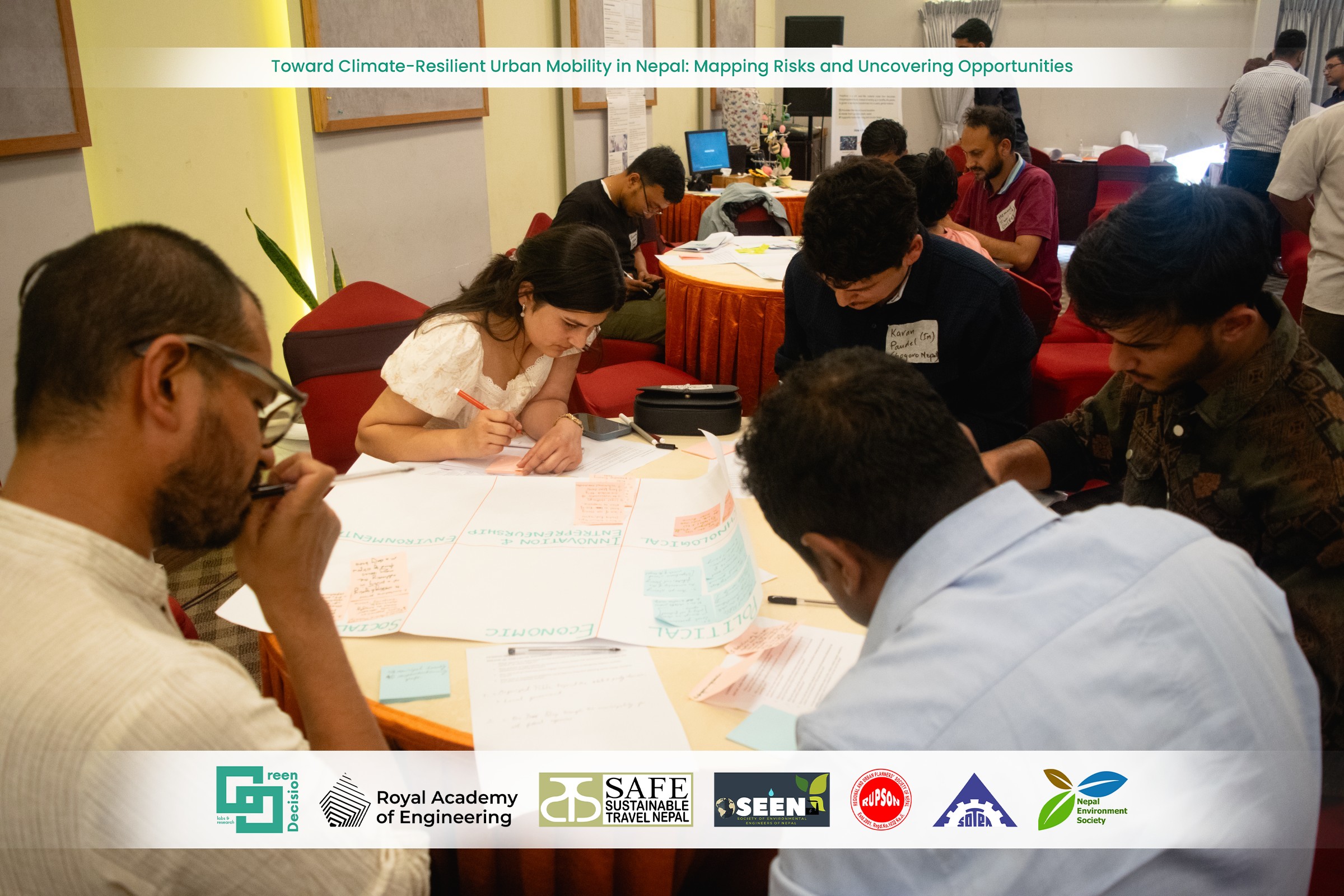
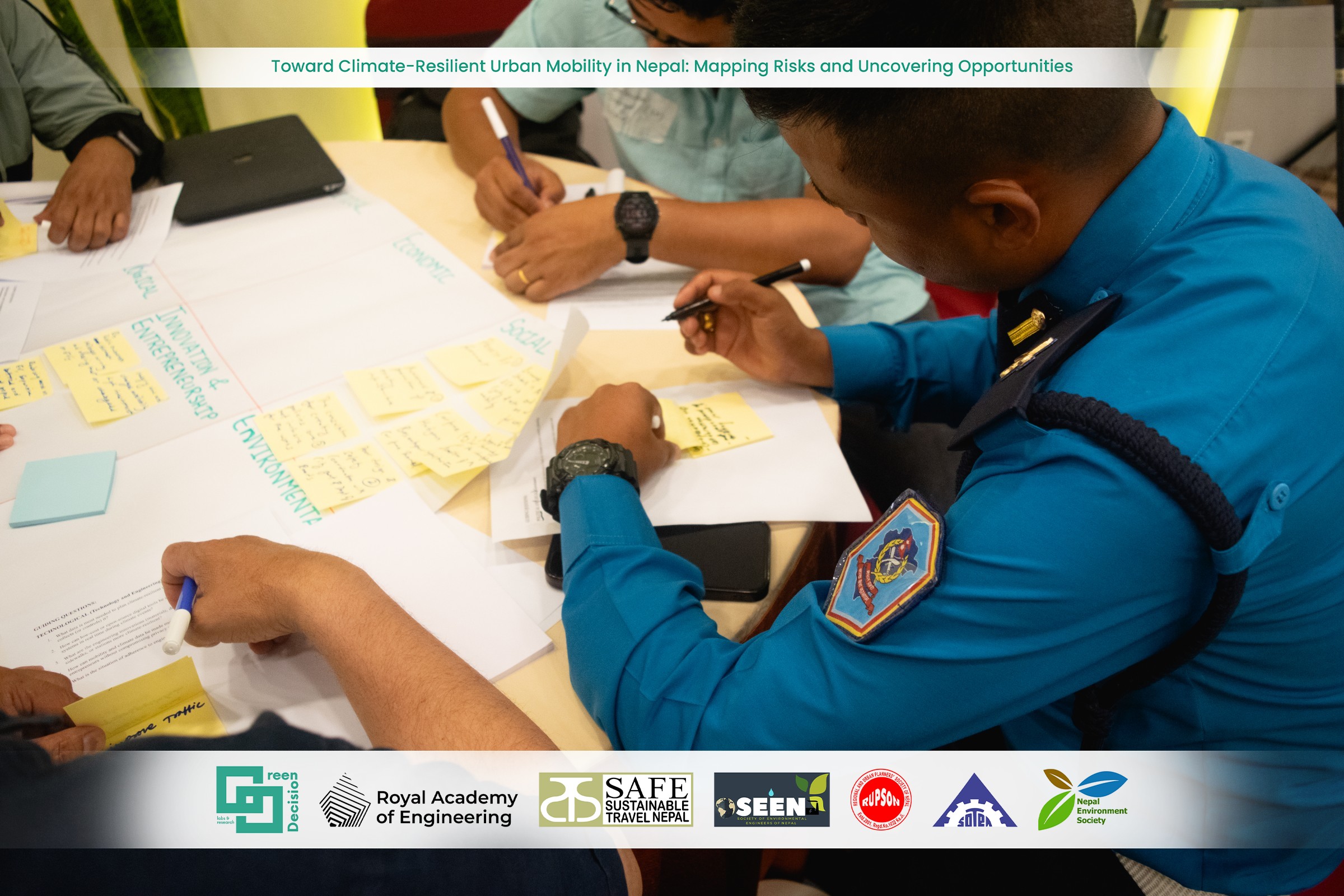
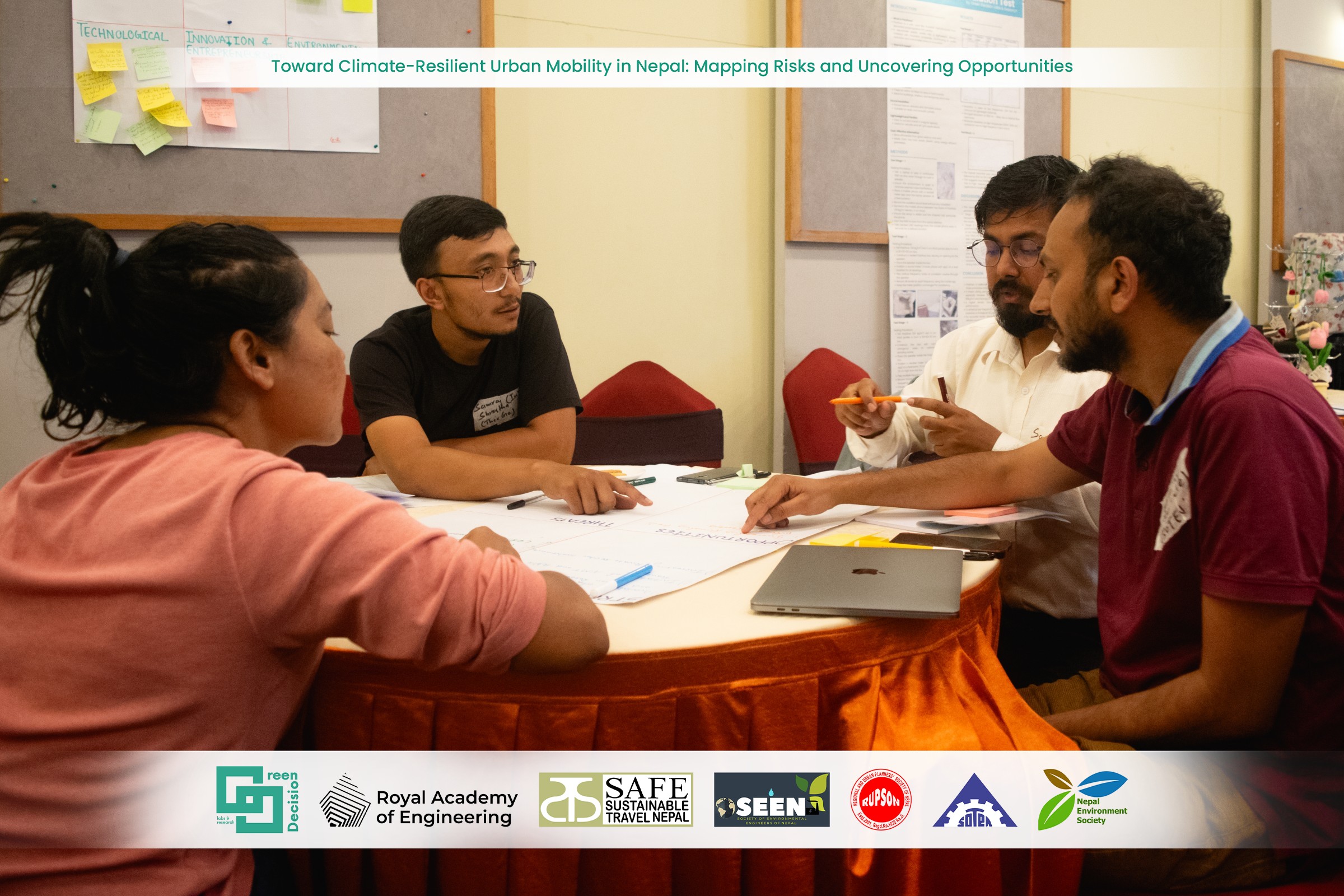
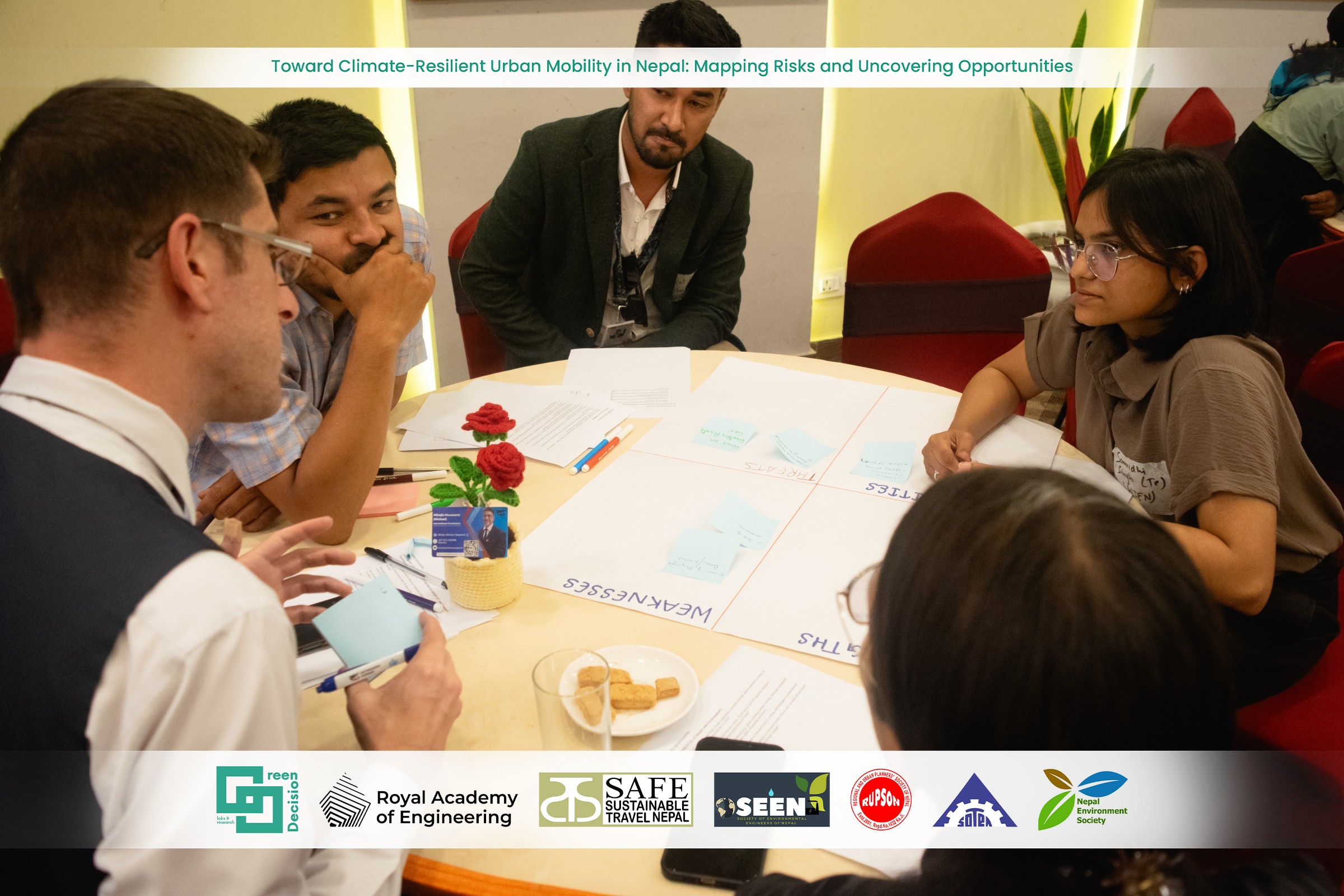
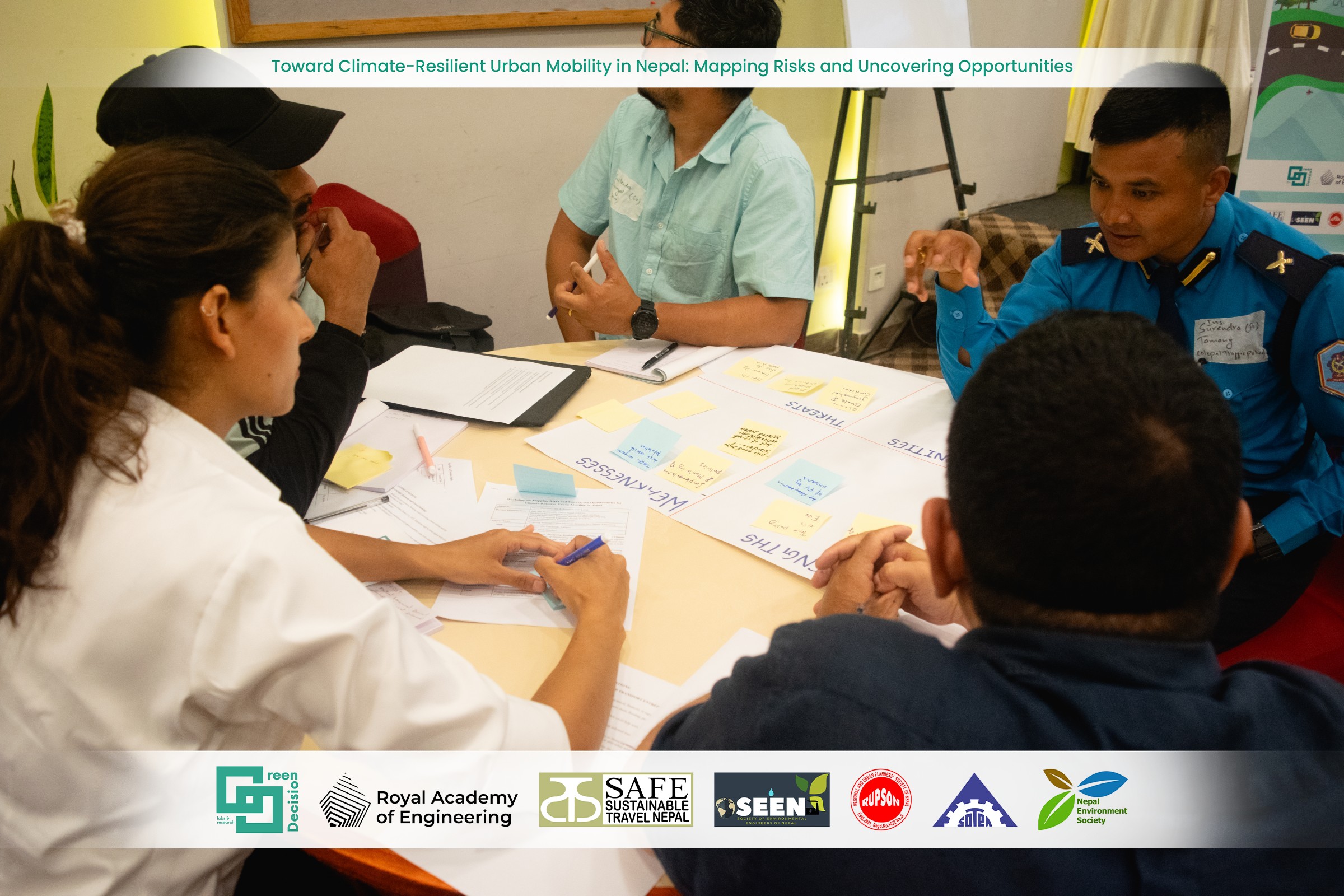
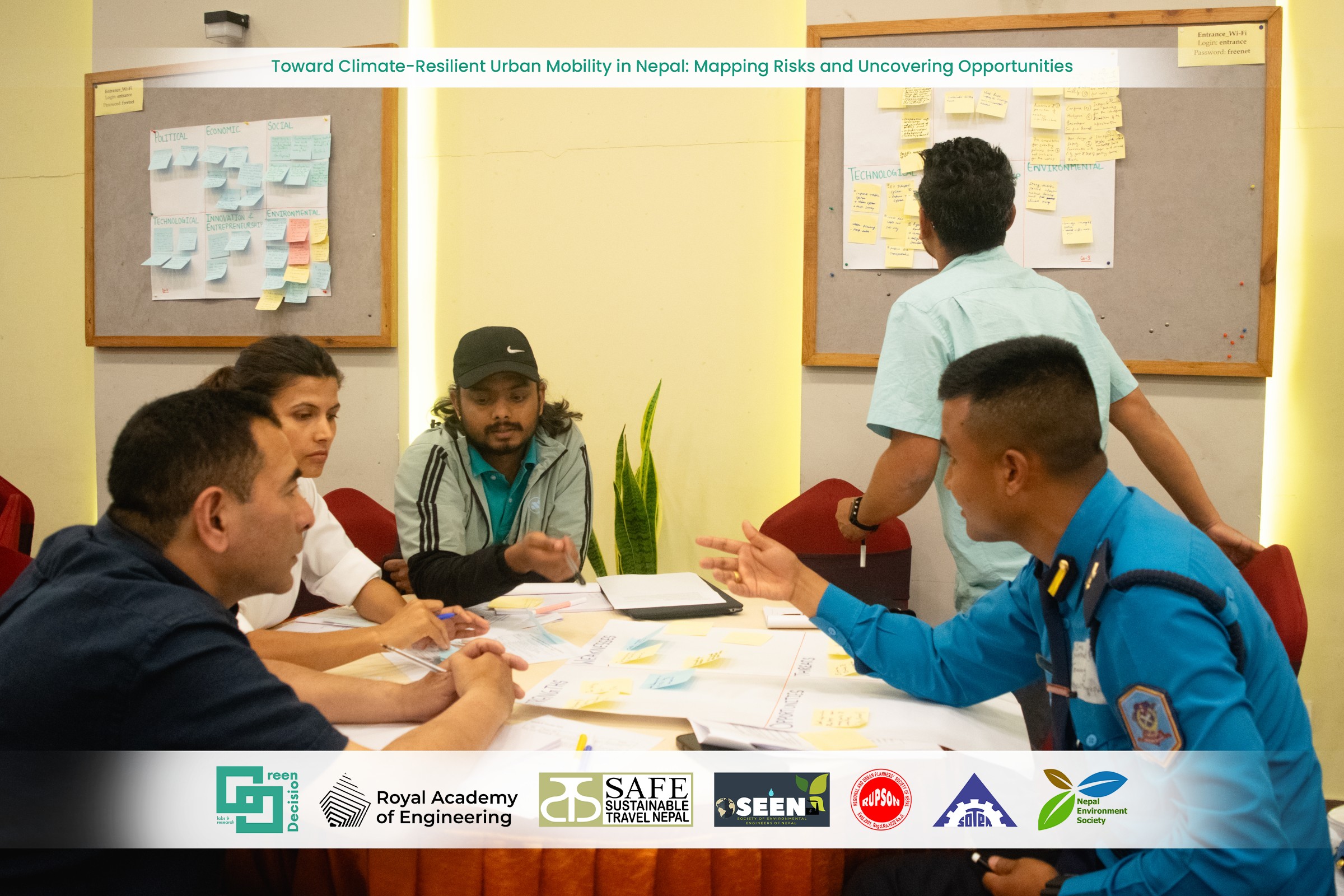


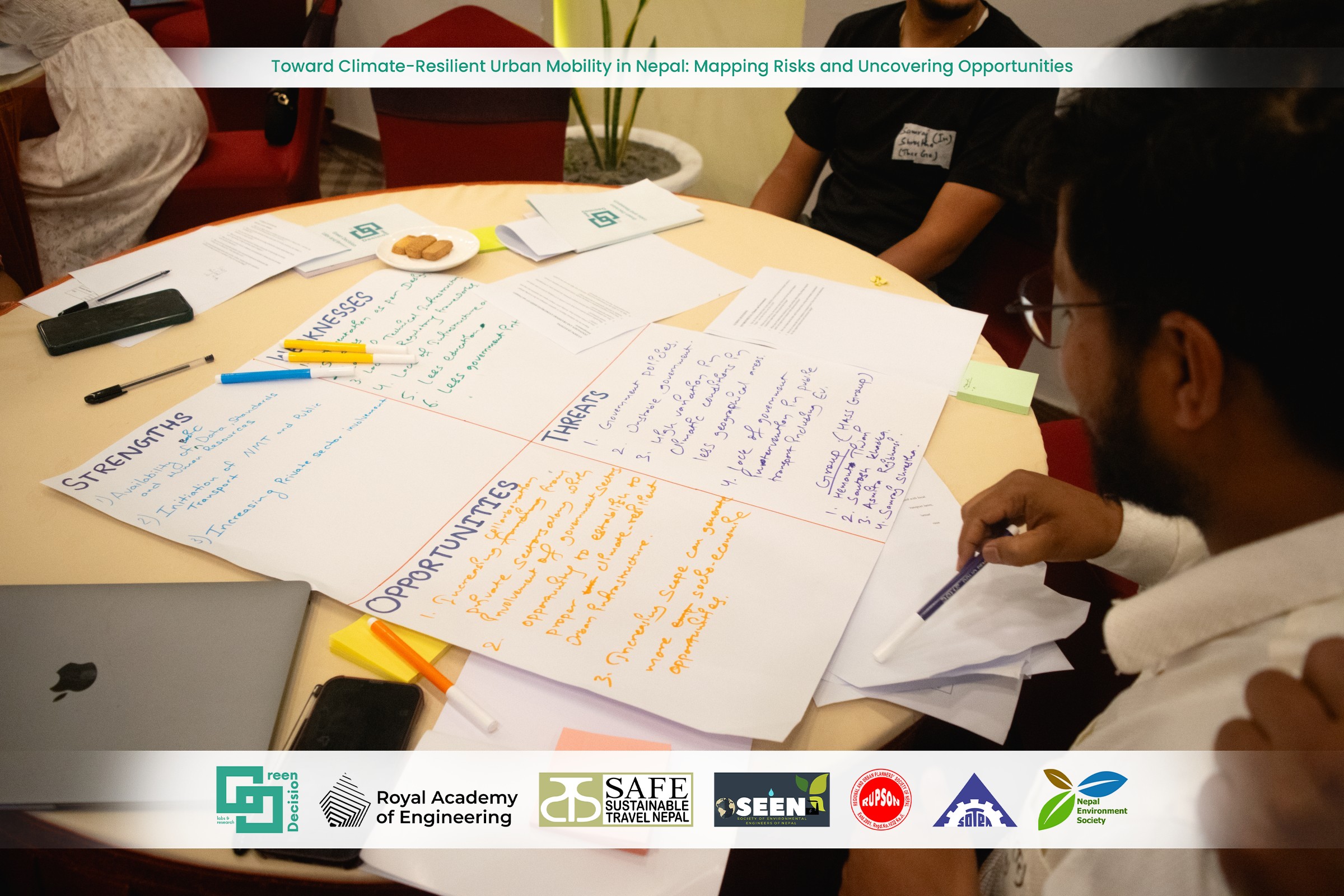
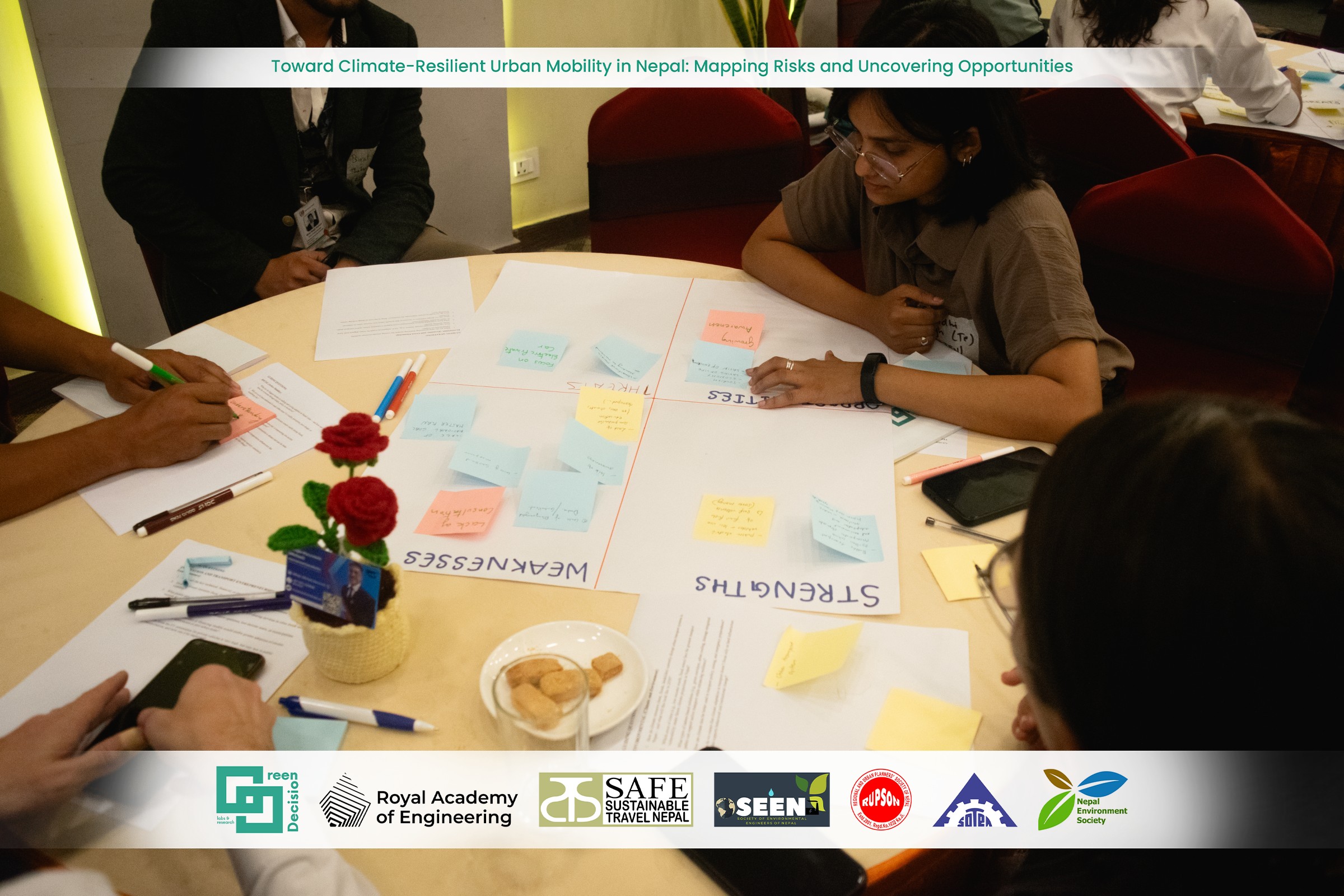
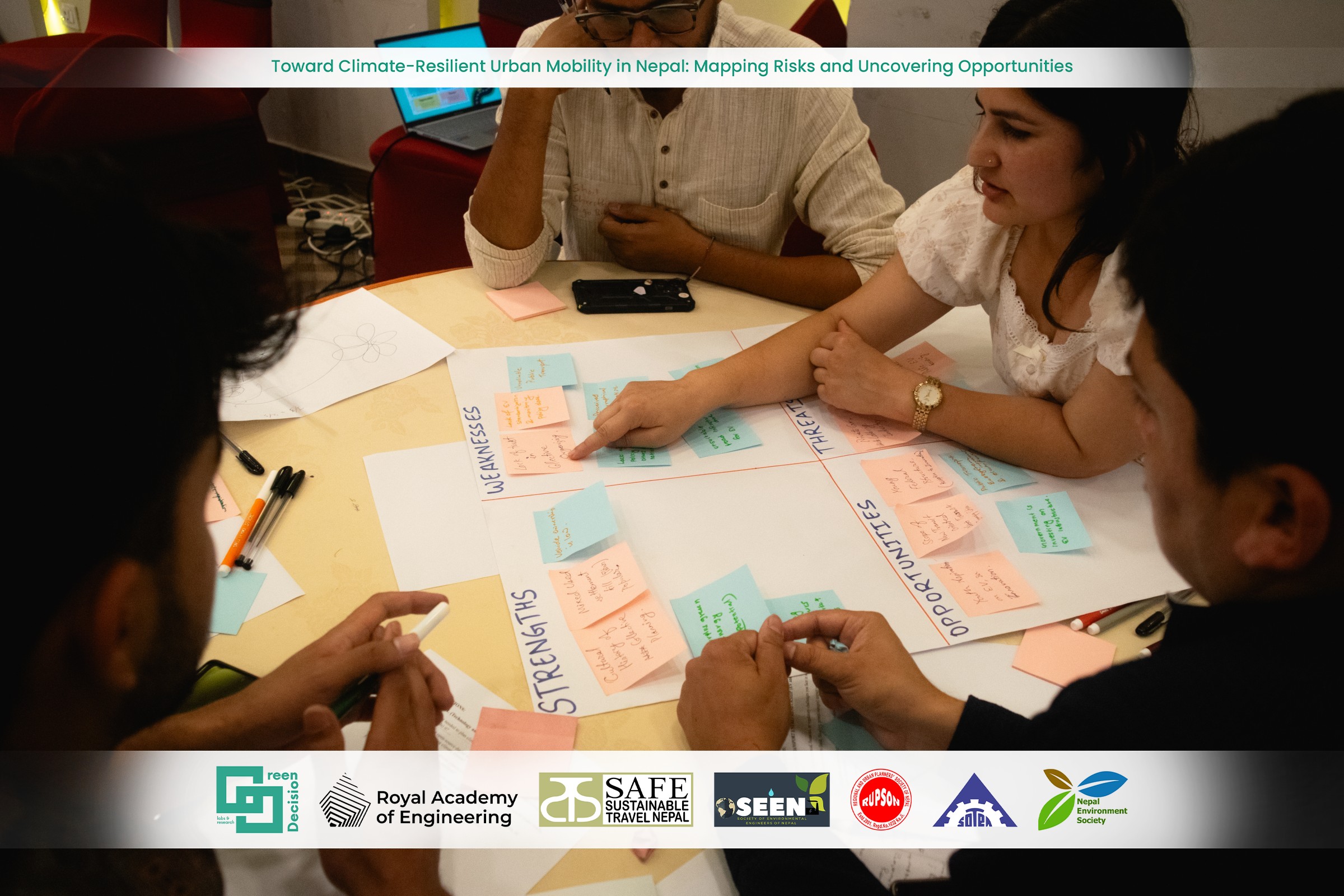
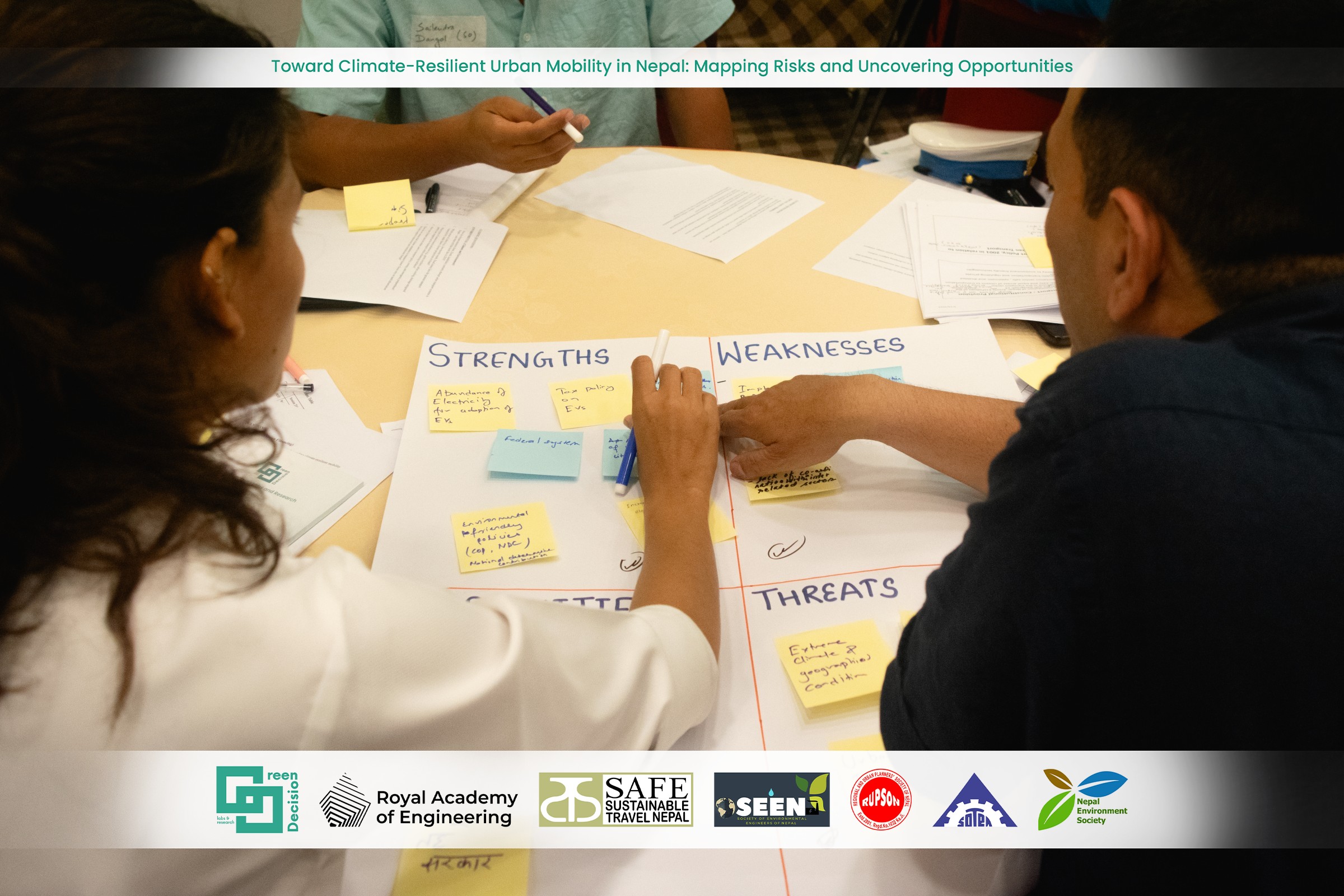
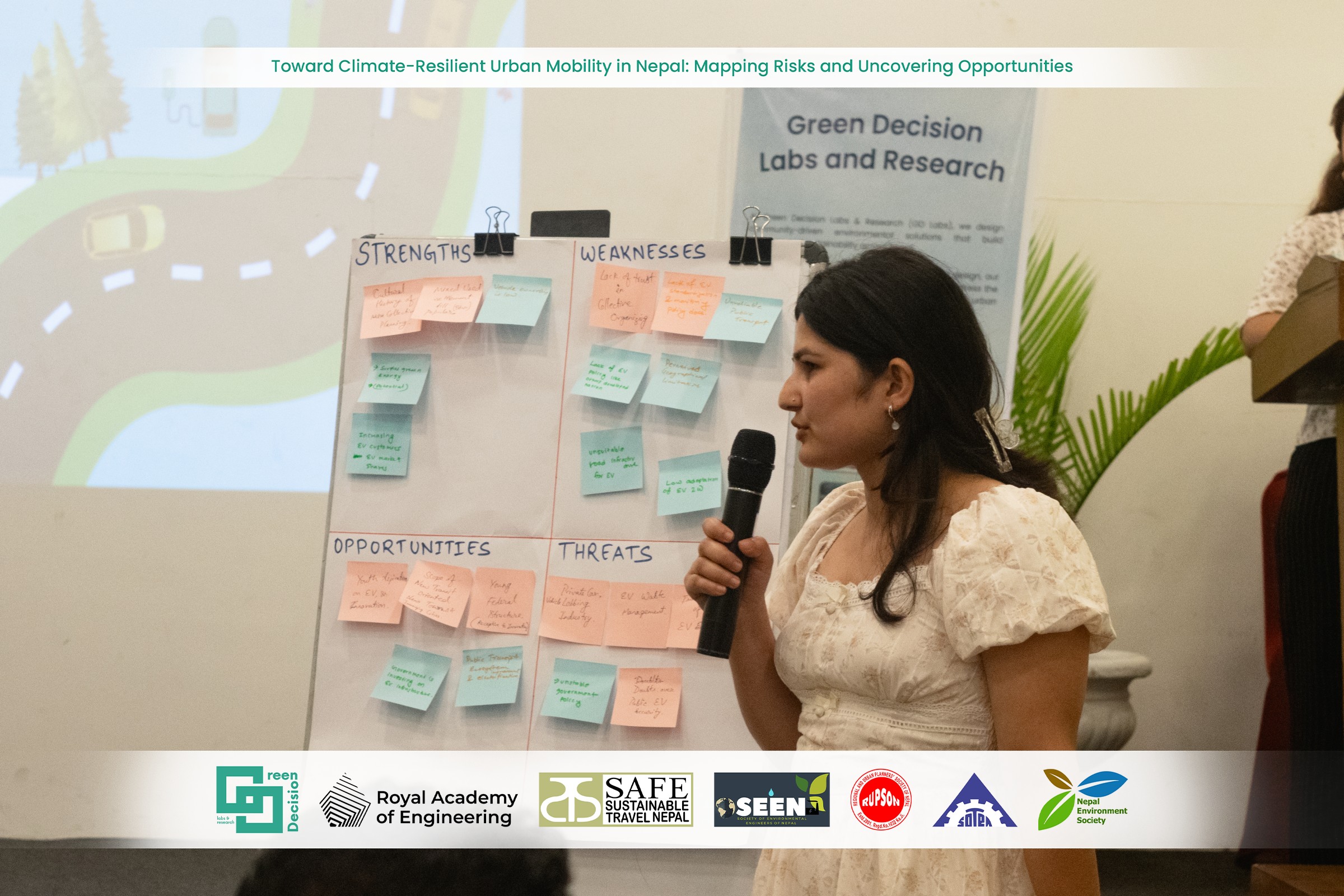

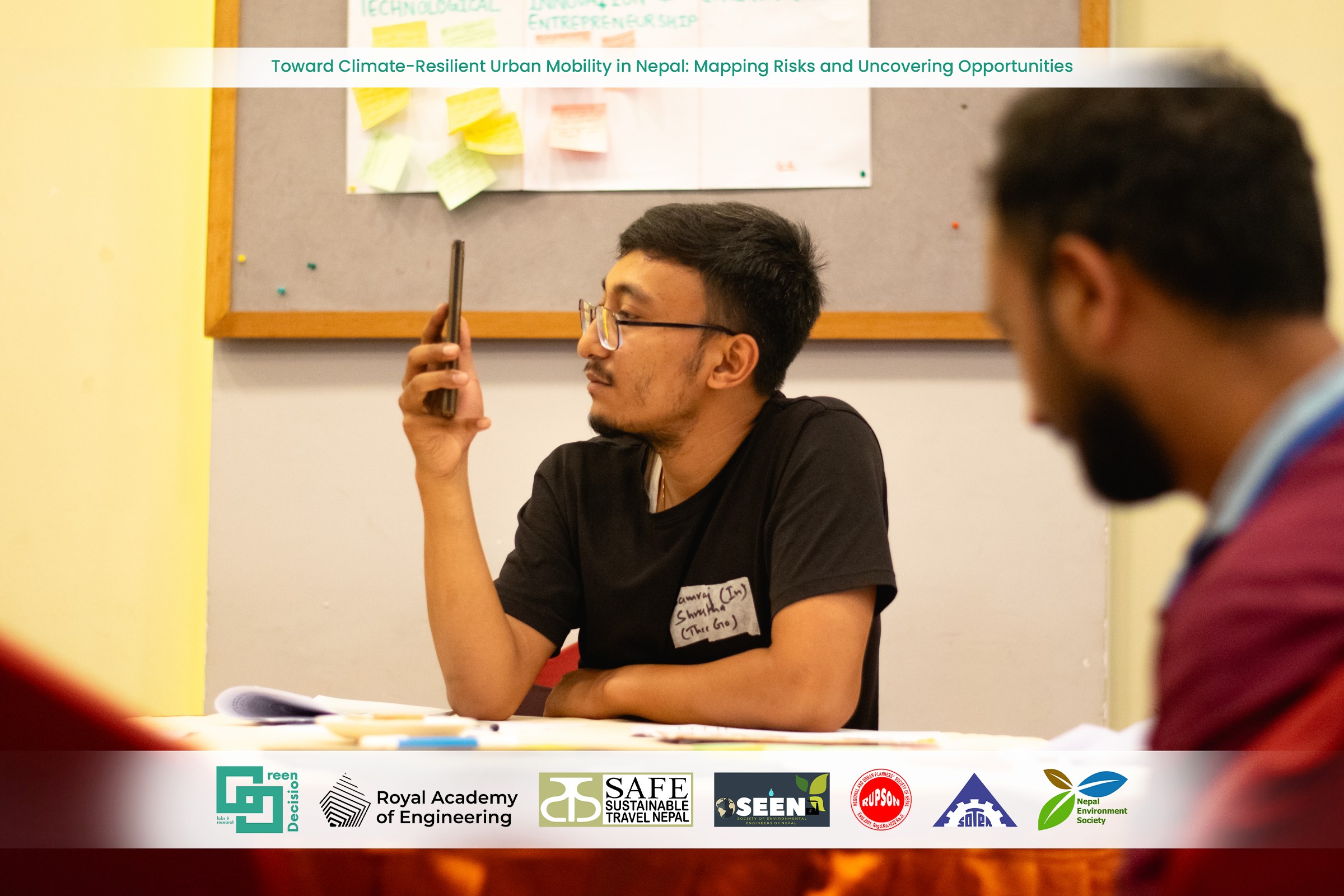
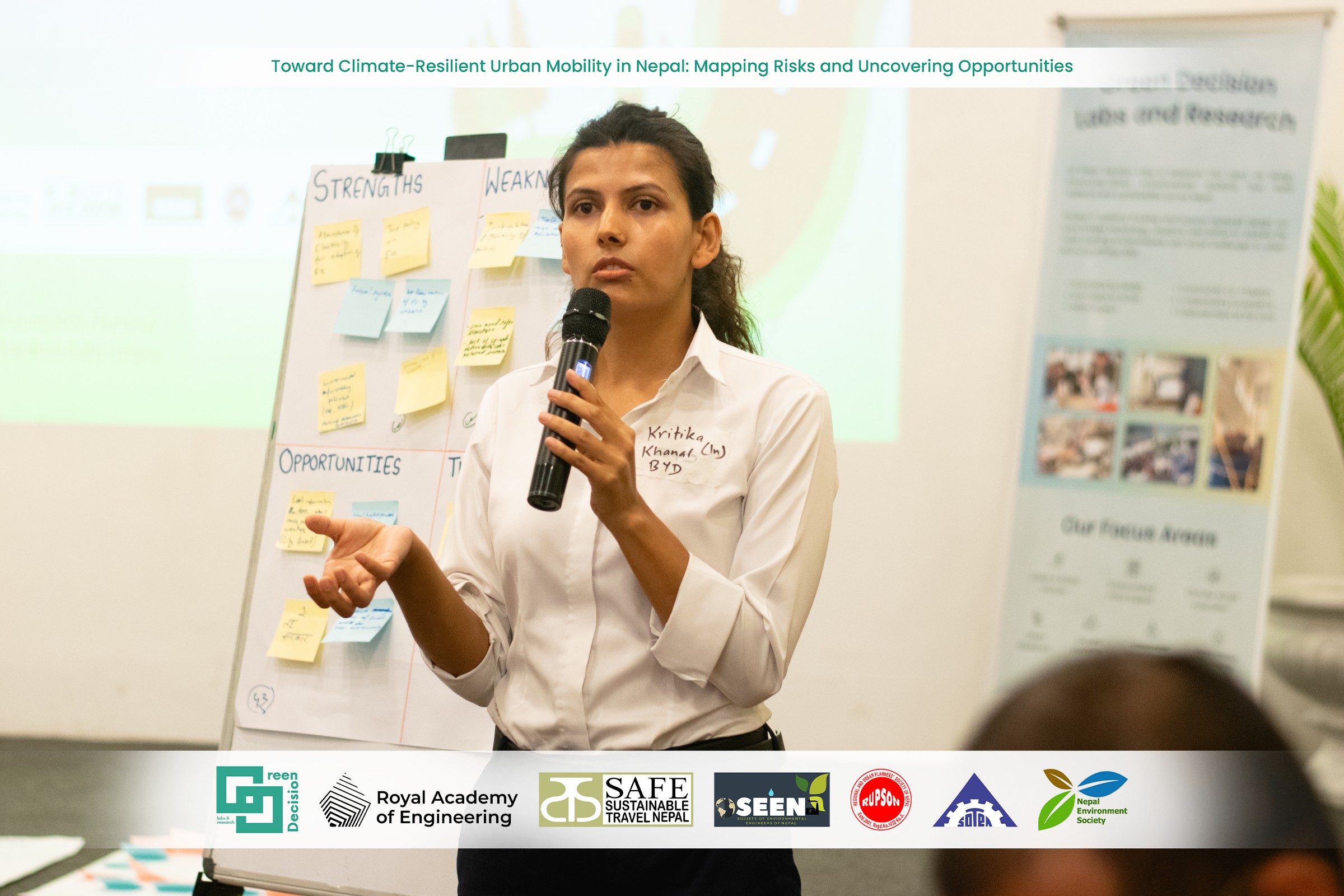
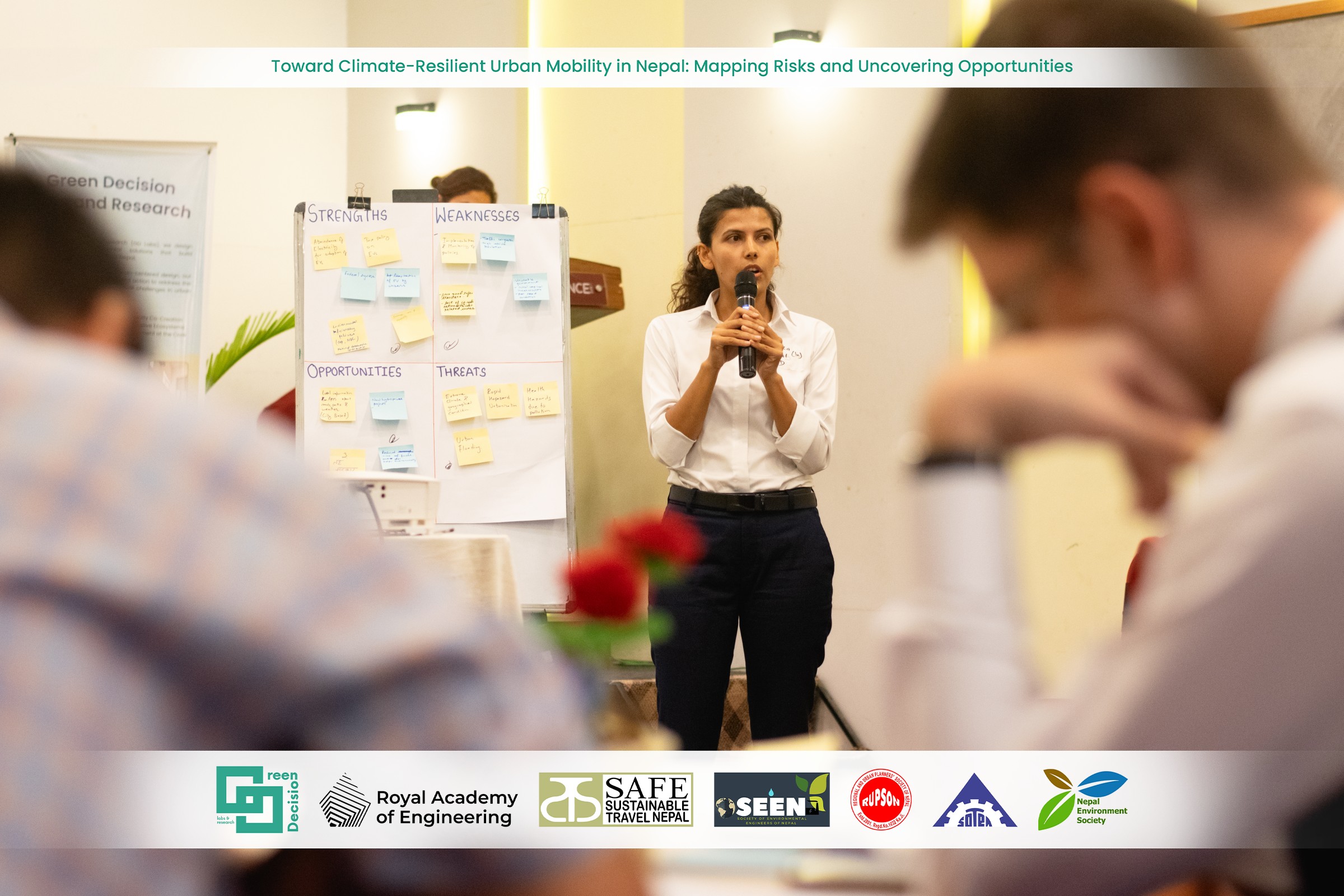
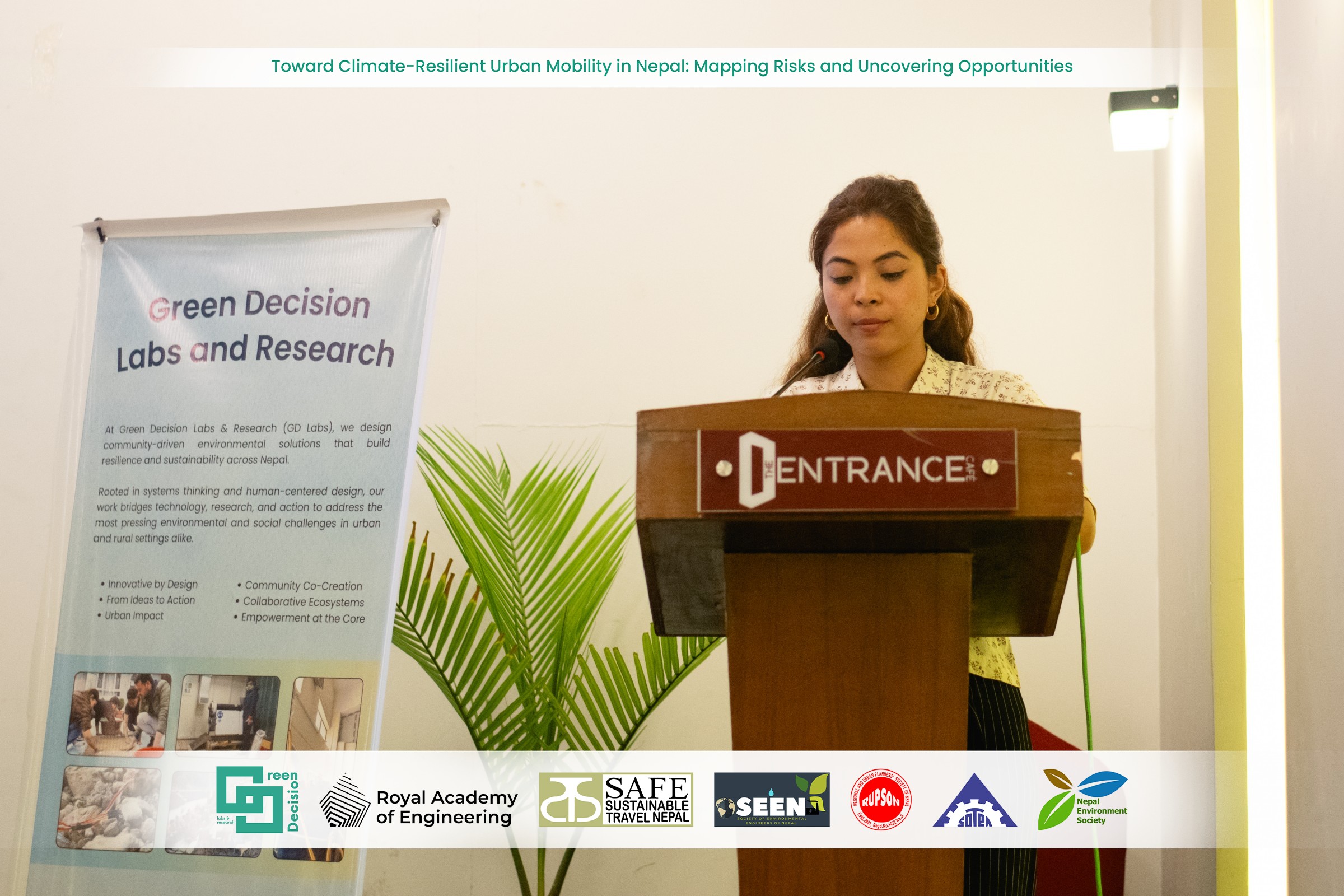
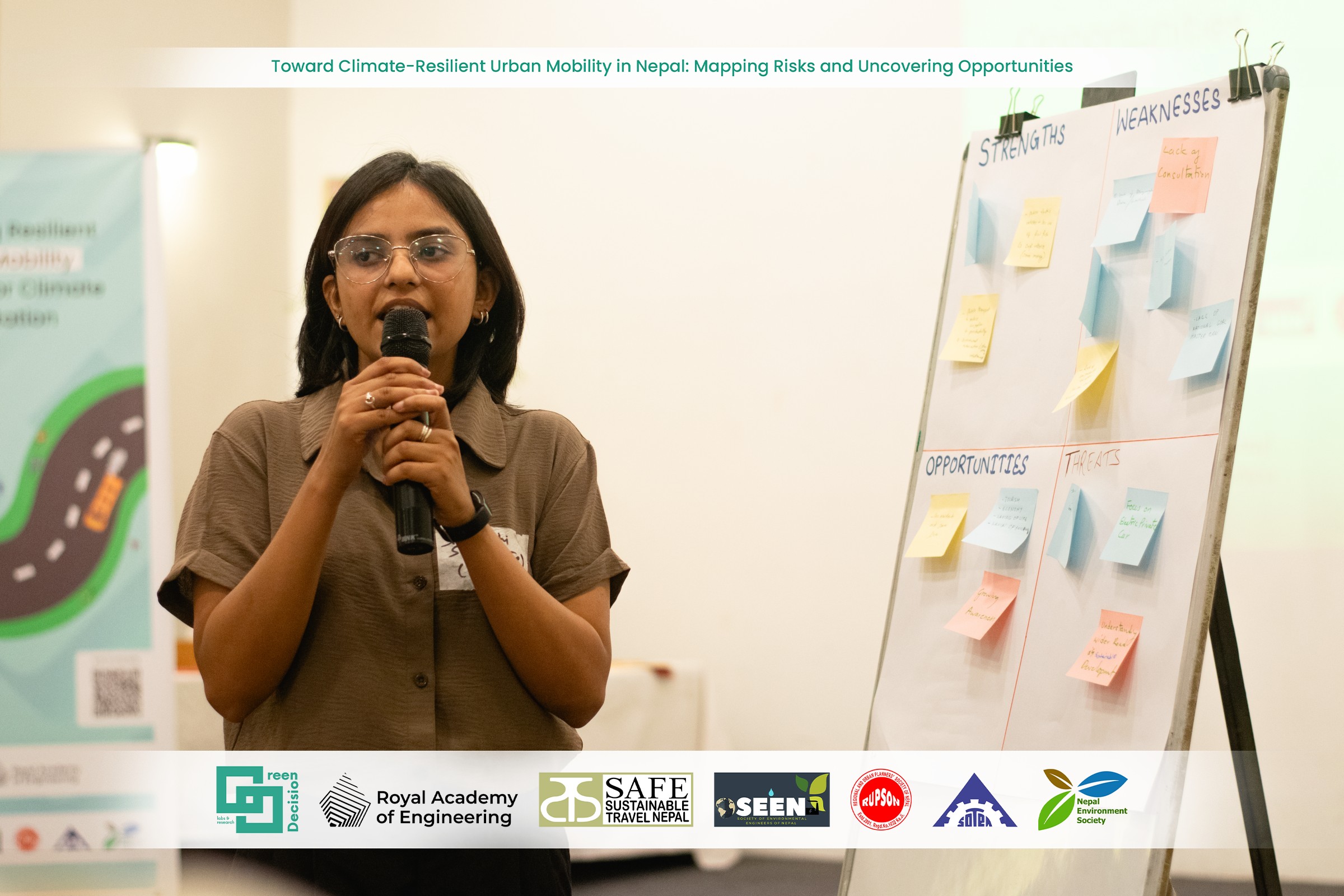
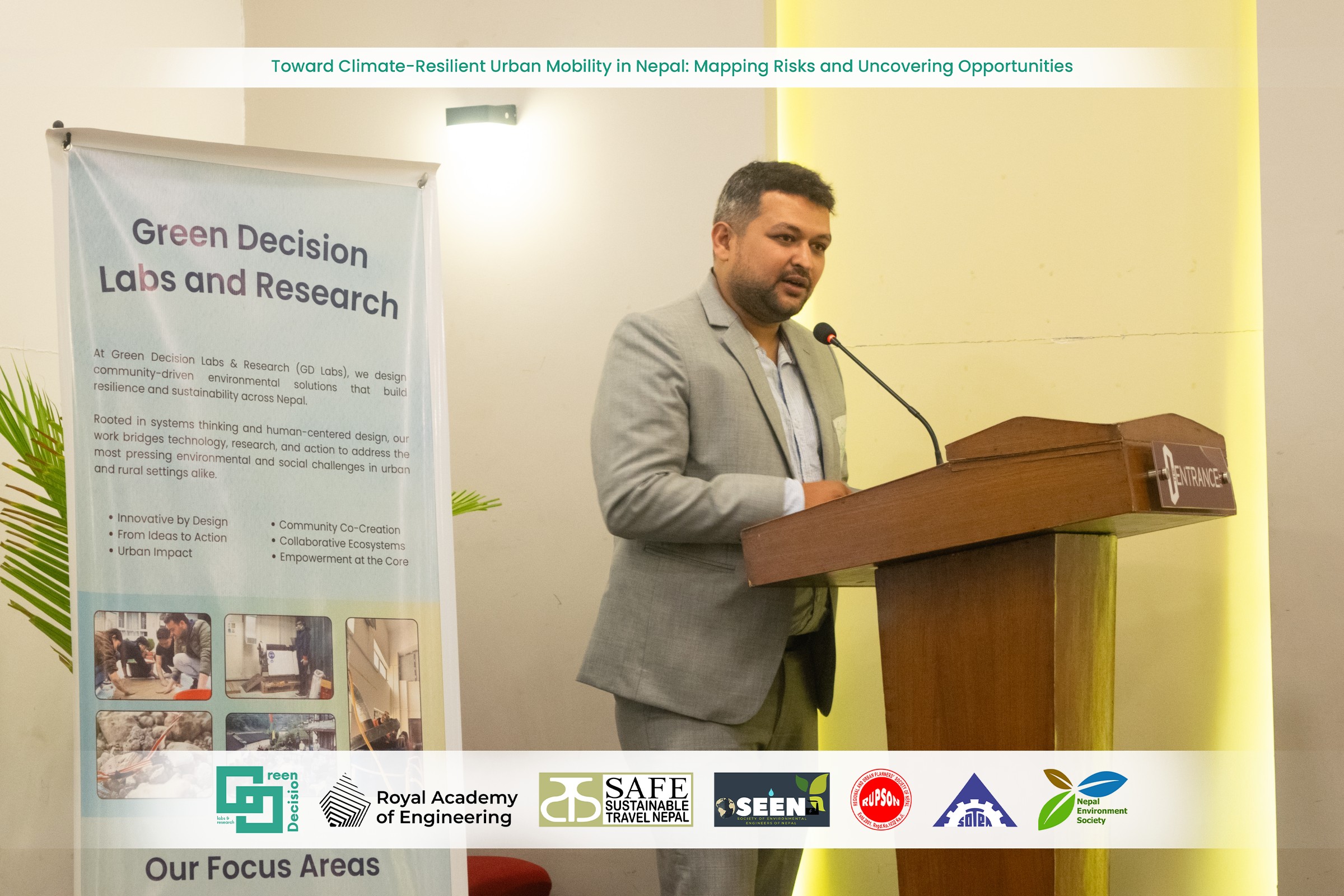
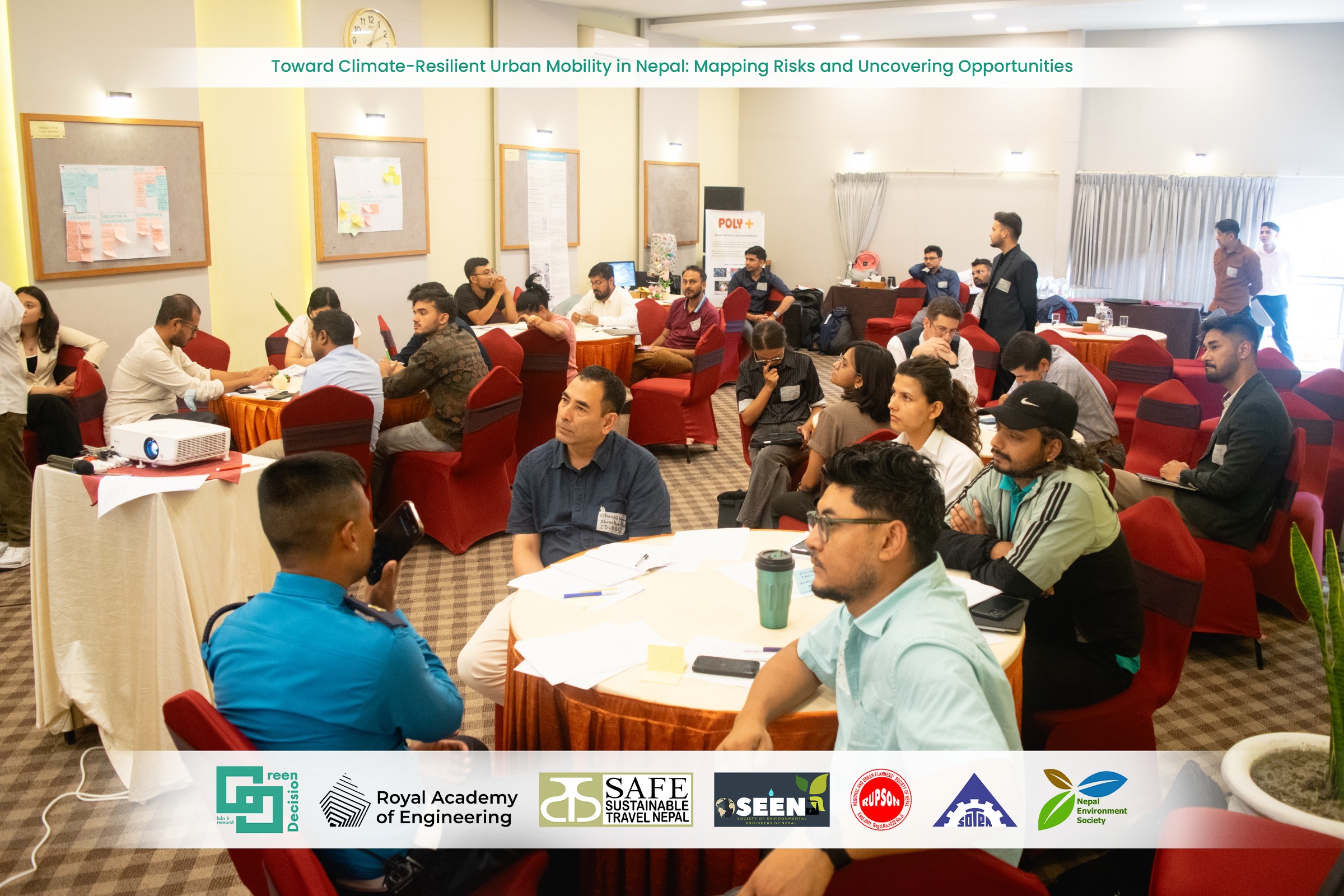
Outcomes and Way Forward
The workshop led to several key takeaways:
- A collective understanding of climate-related vulnerabilities in Nepal’s urban transport systems
- Co-designed strategies for promoting e-mobility, active transport, and data-driven planning
- Identification of policy, institutional, and infrastructure gaps that hinder climate resilience
- Actionable insights feeding into the RAE-supported research paper
- Strengthened cross-sectoral networks and groundwork for future pilot initiatives
What’s Next?
Following the success of the Kathmandu workshop, two more regional workshops are planned in cities two major cities of Nepal, followed by an international-level symposium in Kathmandu.
These events will deepen the engagement, validate research findings, and set the stage for scalable, city-specific interventions to build Nepal’s climate-adaptive mobility future.


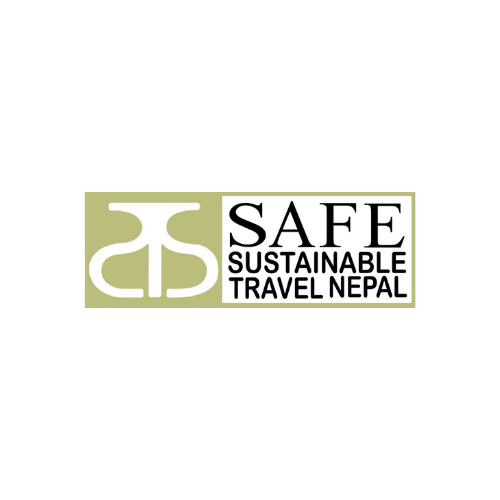




I am technical consultant for sustainable transport and urban mobility from pokhara.
If you have anything like this happening in pokhara reach out to me.
Thank you for reaching out. We’d absolutely love to collaborate and will be in touch with you soon!